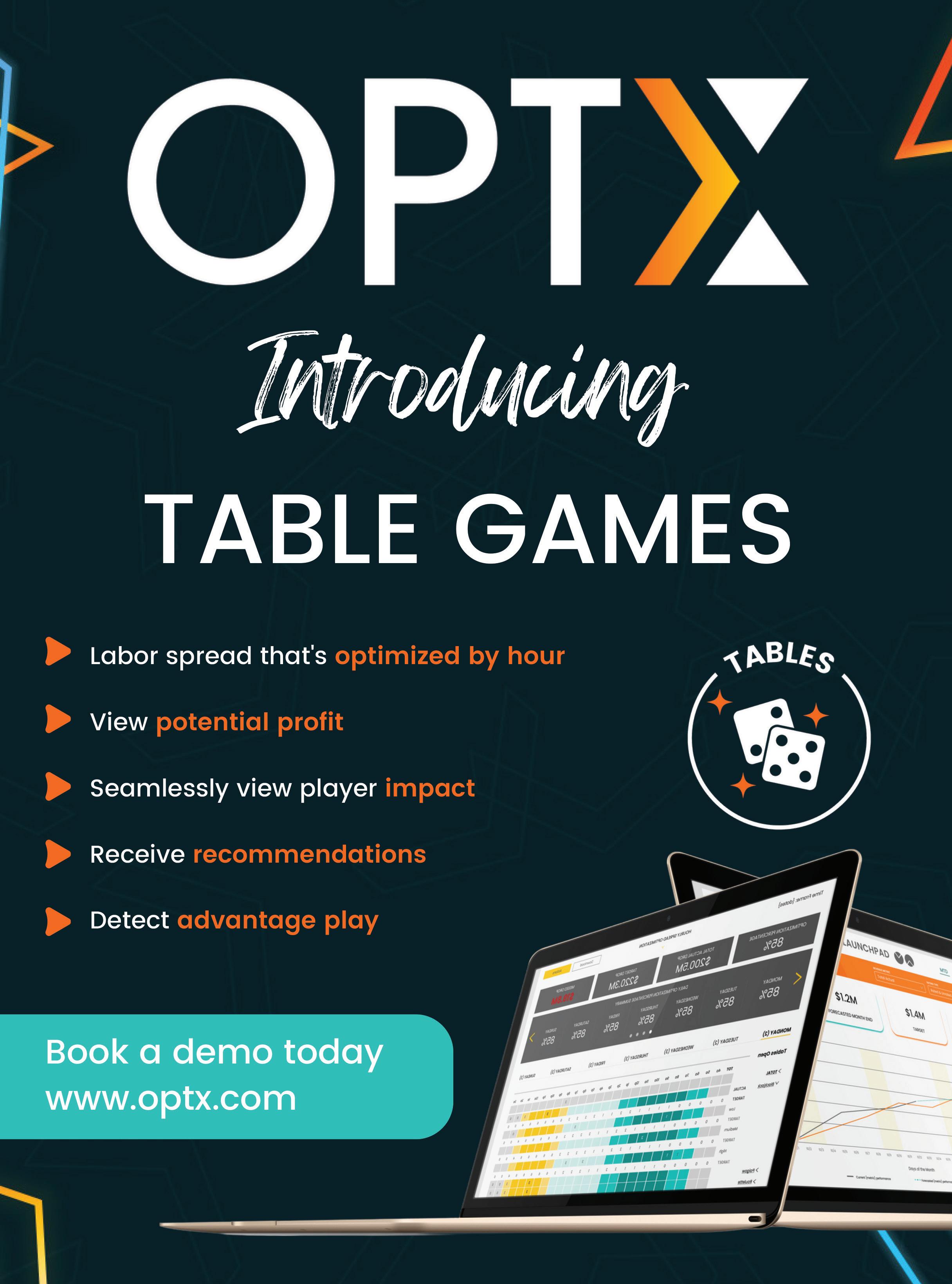





















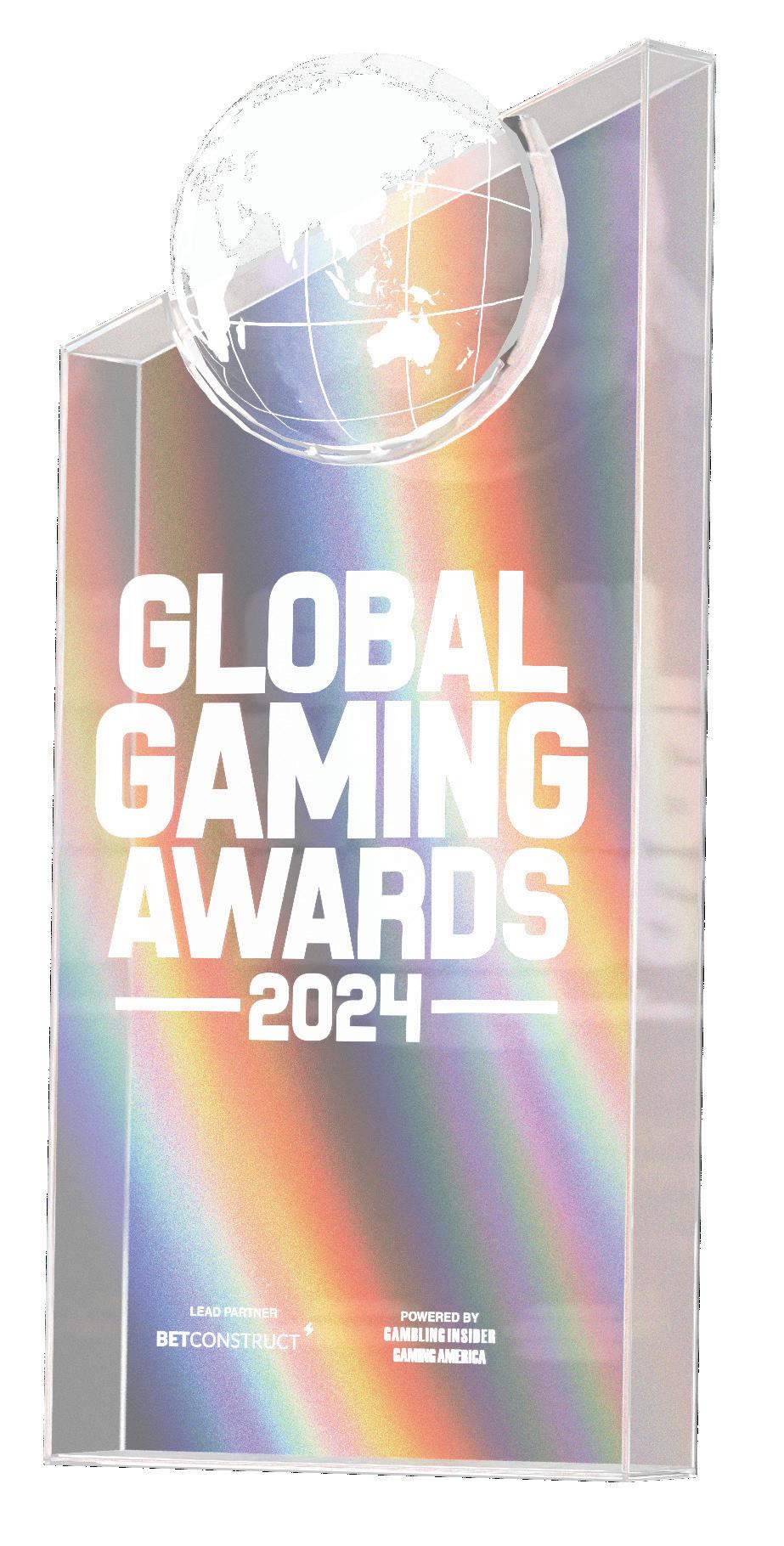











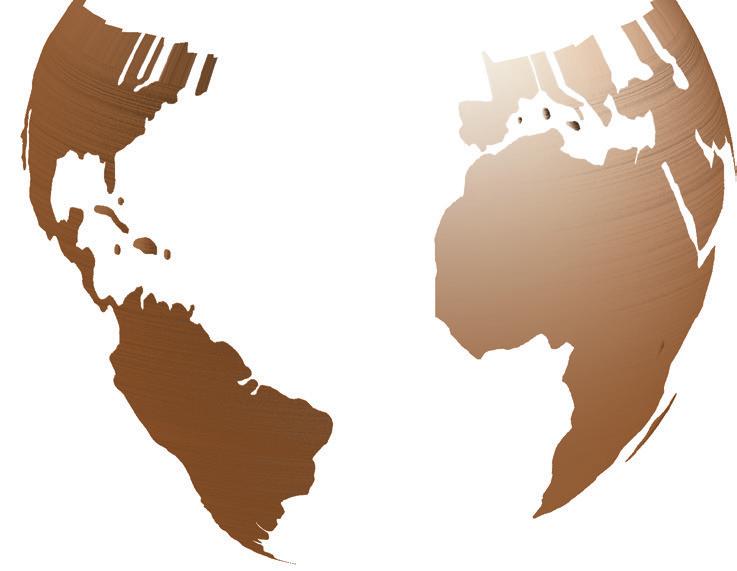















COO, EDITOR IN CHIEF
Julian Perry
CONTRIBUTING EDITOR
Tim Poole
STAFF WRITERS
Laura Mack, Kirk Geller, Beth Turner, Ciaran McLoughlin, Will Underwood
LEAD DESIGNER
Olesya Adamska
DESIGNERS
Claudia Astorino, Callum Flett, Gabriela Baleva
JUNIOR DESIGNER
Medina Mammadkhanova, Tsvetomir Dikov
ILLUSTRATOR
Judith Chan
MARKETING & EVENTS MANAGER
Mariya Savova
FINANCE AND ADMINISTRATION ASSISTANT
Dhruvika Patel
PUBLISHING ASSISTANT
Abi Ockenden
IT MANAGER
Tom Powling
COMMERCIAL DIRECTOR
Deepak Malkani Deepak@playerspublishing.com
Tel: +44 (0)207 729 6279
US BUSINESS DEVELOPMENT MANAGER
Erica Clark
Erica.Clark@playerspublishing.com
Tel: +1 702 355 0473
Casey Halloran Casey.Halloran@playerspublishing.com
Tel: +1 702 850 8503
SENIOR ACCOUNT MANAGER
Michael Juqula
Michael.Juqula@gamblinginsider.com
Tel: +44 (0)203 487 0498
ACCOUNT MANAGERS
William Aderele
William.Aderele@gamblinginsider.com Tel: +44 (0)207 739 2062
Irina Litvinova Irina.Litvinova@gamblinginsider.com Tel: +44 (0)207 613 5863
Serena Kwong Serena.Kwong@gamblinginsider.com Tel: +44 (0)203 435 5628
Max NGarry
Max.Ngarry@gamblinginsider.com Tel: +44 (0) 207 729 0643
Tracey Frost
Tracey.Frost@gamblinginsider.com Tel: +44 (0)203 882 9693
AWARDS SPONSORSHIP MANAGER
Michelle Pugh
Michelle.Pugh@globalgamingawards.com Tel: +44 (0)207 360 7590
CREDIT MANAGER
Rachel Voit
WITH THANKS TO:
David Horn, Oliver Lovat, Eduardo Carvalhaes, Karen Coutinho, Edwin Monzon, John Giammarella, Keith Whyte, Lorraine Ziff, Jonathan Gruber, Ted Pappageorge, Tamara Tenenbaum, Leighton Webb, Molly Dugan, Tim Marcolina, Victor Newsom, Aristocrat, IGT and Light & Wonder. Gaming
2632-766X
Another year approaches its end, as 2024 slowly becomes our past, 2025 the present and a wave of opportunity defines gaming's future.
There is an air of change as the regulated gaming world looks to welcome a new entrant in Brazil (which features frequently in this issue), and the eyes of those in Las Vegas might just wander over to the UAE.
Of course, Las Vegas has seen some major change of its own of late, with the Tropicana and the Mirage both recently closing their doors, to make way for a baseball stadium –very much in theme with Las Vegas' expanding sporting ambitions – and Hard Rock's Guitar Hotel in Las Vegas (what a sight that will be).
Elsewhere, the sweepstakes vertical was the talk of G2E and for good reason. It already represents a billion-dollar industry and, as that figure grows, questions are now being asked about regulation as it faces opposition from various sectors.
But, even from more traditional forms of gaming like land-based casino, sports betting and fantasy sports, there is a huge deal to come in 2025.
Indeed, when looking back at 2024, there is no better measure of how well the industry performed than the Global Gaming Awards Americas ceremony in October.
At the Venetian in Las Vegas, the biggest collection of C-level executives in gaming came together to celebrate the success of the past year – and there were some very recognizable winners.
Wynn Resorts, which will lead the charge in the aforementioned UAE, was crowned Land-Based Operator of the Year, while FanDuel went home as Digital Operator of the Year.
A variety of tier-one operators and suppliers triumphed elsewhere, with Aristocrat Gaming claiming no less than three Awards, while The San Manuel Band of Mission Indians won Responsible Business of the Year for the fourth consecutive occasion – and Amy Howe won American Executive for the third year in a row. (Wow!)
We review every winner in this November/December issue. Elsewhere, we speak with Keith Whyte of the National Council on Problem Gambling, the 'Goddess of Slots,' and Ted Pappageorge of the Culinary Union.
We also continue our traditional land-based casino reviews, speak to industry experts about payments and compliance in our Viewpoints section, and provide a special edition of our regular product reviews - focusing on the four products that triumphed at the Global Gaming Awards.
All that and more as we see off a successful 2024. From everyone at Gaming America, we'd like to wish you a prosperous 2025 ahead.

JULIAN PERRY, COO, Editor-in-Chief












































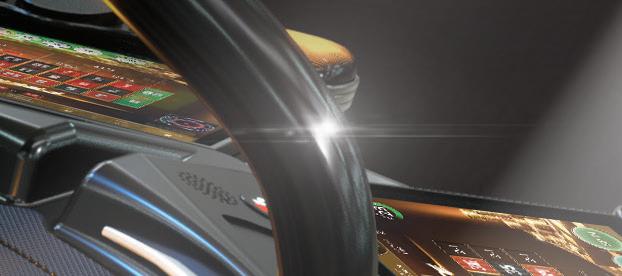





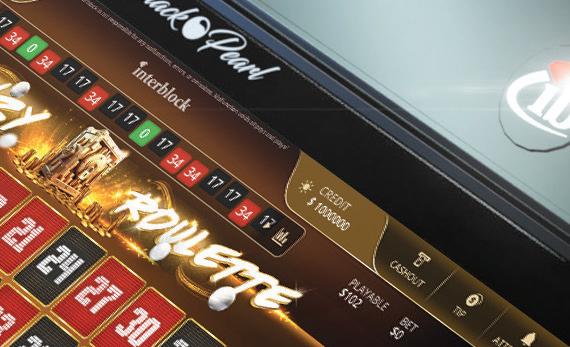








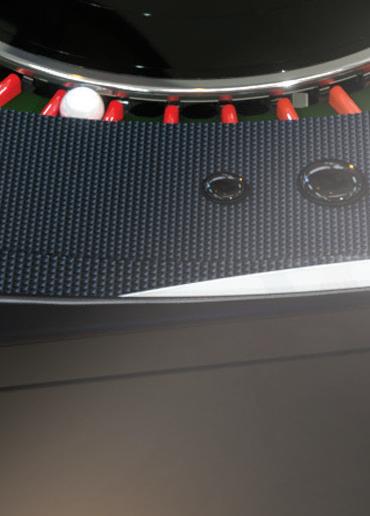






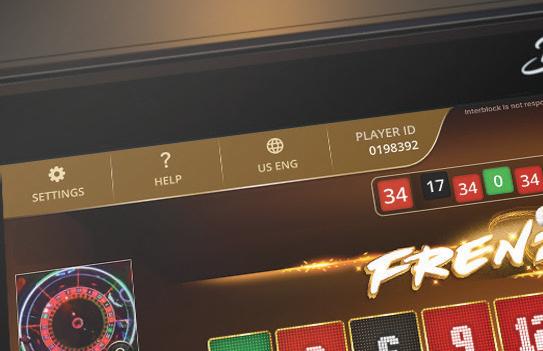





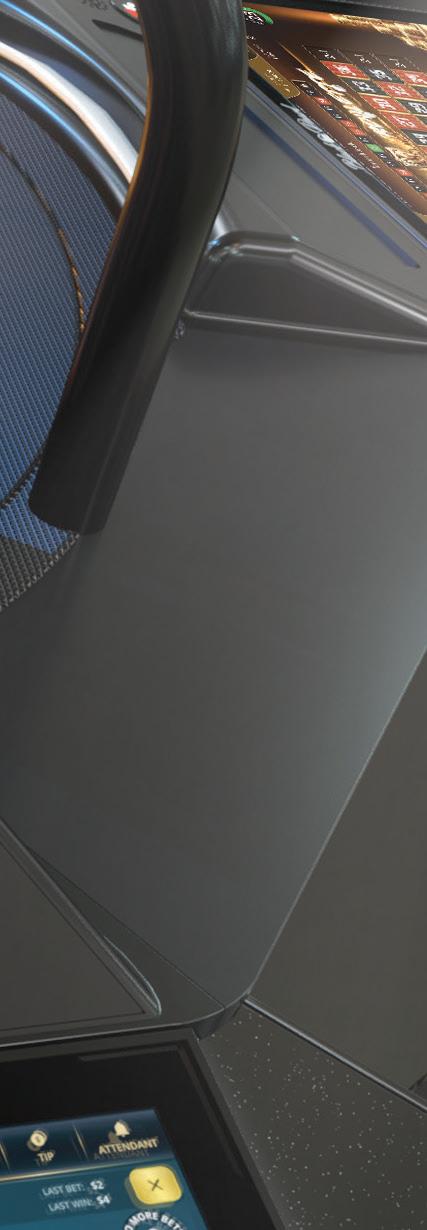






In our regular column, and in keeping with this issue's main theme, we look ahead with David Horn, GM at one of Las Vegas' newest properties: Durango Casino & Resort.
Gaming America brings back another regular feature, our US gaming map, as we look at online gaming across the nation.
At a stunning Las Vegas ceremony, the 11th of its kind, the Global Gaming Awards Americas rewarded the industry's finest performers over the past 12 months. We review all the winners across pages 14-34.
Oliver Lovat, regular Gaming America contributor and Las Vegas expert & historian, reflects on where Las Vegas is going bidding a fond farewell to the Tropicana and Mirage properties that were perfect for their generation.
42
BRAZIL FOCUS: LEFOSSE
After regulatory limbo, sports betting in Brazil is moving towards legal certainty; Eduardo Carvalhaes, Partner in Public Law and Regulation, and Karen Coutinho, Counsel in Public Law and Regulation, discuss.
44
46
BRAZIL FOCUS: LAZARUS LEGAL
Edwin Monzon and John Giammarella of Lazarus Legal speak to Gaming America about Brazil’s upcoming online gaming regulation, assessing the prospects and challenges involved.
We speak with Keith Whyte, Executive Director of the National Council on Problem Gambling, to see where the industry is falling short, and what various stakeholders can do to pull forward together.
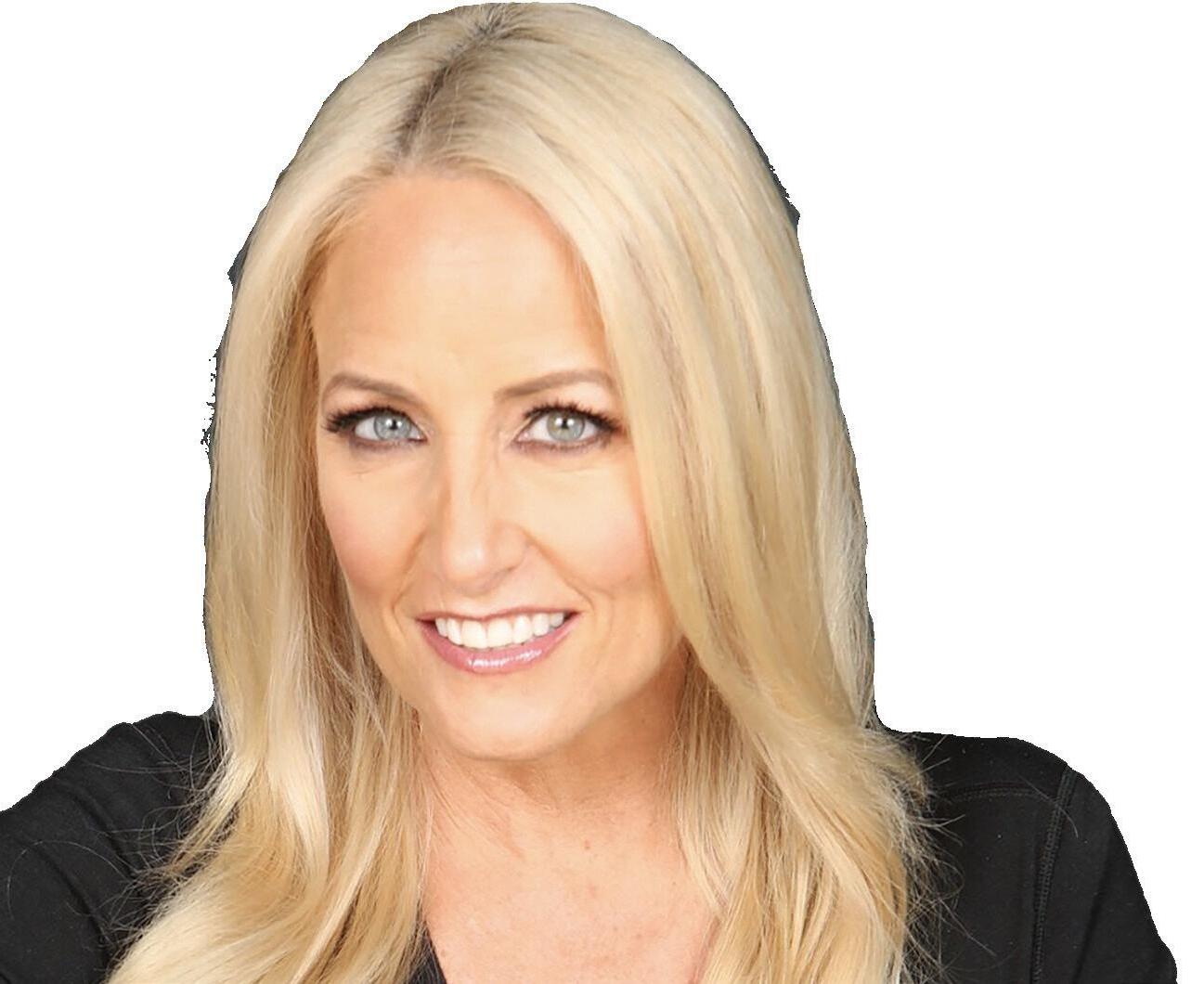
Gaming America’s Laura Mack takes her search for the ultimate casino experience further afield to include Indiana’s neighbors Hollywood Casino Aurora vs. Hollywood Casino Lawrenceburg.
The 'Goddess of Slots' Lorraine Ziff speaks to Gaming America , explaining how acting and producing helped prepare her for a life of content creation in gaming.
Loserball Founder Jonathan Gruber joins Gaming America's Kirk Geller, discussing how his company was formed and its impact on fantasy sports.

Culinary Union 226 Secretary-Treasurer Ted Pappageorge details ongoing contract disputes with Virgin Hotels in Las Vegas, as well as the tentative agreement reached with the Venetian.
Gaming America asks industry experts from Everi, Pavilion Payments, PayNearMe, CPI and Sightline about how cashless payments can grow, and possible pushback from veteran players.
After another memorable Global Gaming Awards Americas ceremony in Las Vegas, Gaming America reviews the four products that won specific product-related categories, featuring Light & Wonder, Aristocrat (twice) and IGT.

Gaming America reviews the closures of the Mirage Hotel and Casino, as well as the Tropicana, but also keeps an eye on the future with Durango Casino and Resort GM David Horn.
Thirty four years ago, in a vastly different Las Vegas Strip than today’s, the Mirage Hotel and Casino opened its doors to unveil the work of architect Roger Thomas and the shared vision of Steve and Elaine Wynn. The Wynns desired an innovative attraction that could stand out in a city that was becoming one of the world’s top tourist destinations.
To achieve this goal, Thomas went to work incorporating a tropical paradise theme that included the widely recognized volcano display, along with an atrium of lush greenery in the Mojave Desert.
The Mirage slowly became one of the Strip’s most popular casino resorts; and many of the employees who helped to
achieve what the Wynns first set out to accomplish were in attendance when the property officially ended operations on July 17 2024.
Hard Rock International acquired the Mirage from MGM Resorts for $1.075bn in 2022, announcing plans to update the hotel and casino back in November of 2023. The rebranded property has an early estimated opening set for 2027, following a complete overhaul of the site with a new 700-ft guitar-shaped hotel set to be featured in the center of the Las Vegas Strip.
“This is the first time I’m at an ‘adjustment’ of one of my own properties. I didn’t really realize until I walked into the building
“YOU’RE NOT MOVING FORWARD IN THIS INDUSTRY IF YOU’RE NOT LEARNING FROM WHAT YOU’VE DONE IN THE PAST, BE IT MISTAKES OR GOOD DECISIONS.” - DAVID HORN
today and looked around,” Elaine Wynn said in her ceremony speech.
“We refresh, we reinvest and we make Las Vegas one of the greatest cities in the world for that. We don’t let our buildings get old, we just let the bosses get old.”
The Mirage officially closed its doors having celebrated its history with the woman behind its creation and 137 dayone employees who worked to build a legacy that will not be forgotten by Las Vegas. The casino resort’s President Joe Lupo and Hard Rock International Chairman and Seminole Gaming CEO Jim Allen were also in attendance.
Meanwhile, after its own 65-year journey, The Tropicana Hotel also saw its storied run in the entertainment capital come to an end, with the implosion of the property taking place on October 9. On September 27 2022, Bally’s Corporation completed its purchase agreement of the Tropicana from Gaming & Leisure Properties, Inc. and Penn Entertainment for $148m. The Tropicana site will become the future home of the new Oakland Athletics’ baseball stadium, which is set to host between 30,000 and 35,000 fans every game day.
MEGA
(Motivational Engineering Gaming Application)

CASINO INTEGRATIONS
PLAYER ACCOUNT MANAGEMENT & FRONT-END


MANAGED SERVICES PAYMENTS
SPORTSBOOK INTEGRATED SOLUTION

Bally’s issued a statement reflecting on the history of the hotel and its impact on the city, having said, “From its Rat Pack-era heyday and the glamorous Folies Bergère to now the future home of the Athletics and a cutting-edge entertainment complex by Bally’s Corporation, the Tropicana’s history reflects the spirit of reinvention and excitement that defines Las Vegas.”
While the Mirage and Tropicana sites will play home to new additions on the Las Vegas Strip, the Durango Casino and Resort lies nearly 20 minutes away from where the two properties currently reside. The latest Station Casinos’ project, Durango opened its doors on December 6 2023 to a large crowd of awaiting guests looking to get a feel for what GM David Horn calls “affordable luxury.”
After nearly a year of being in operation, Horn spoke to Gaming America about how Durango is constantly evolving and learning from previous Station Casino debuts in areas such as Red Rock and Boulder City. Seeing the excited faces of visitors and special guests, including Red Rock Resorts President Scott Kreeger, Horn seemed to understand the opportunity that was placed in front of himself and his staff. “That positioning to try and elevate what a locals casino is moves us into a unique sector, where we’re trying to not just appeal to the residents in our area, but to try and add some of those Strip-like amenities as well,” Horn said.
“Opening day, all of our ATMs were emptied by 3pm which, to see a response like that right away, was very eye-opening to myself but provided the confidence that we were going to be very successful. Our process puts us in a really excellent position to be in an area with magnificent growth that’s still going on either in commercial or residential. And I think that’s what works as the pin for us, to not only provide a really good product over here but have success for the coming years also.”
Durango boasts roughly 2,300 slots and 63 table games in a rectangular casino floor set off by floor-to-ceiling windows that let in an unusual amount
of natural light for a Las Vegas casino. At its “Eat Your Heart Out” food hall, visitors can sample a variety of cuisines in a communal dining experience including an Irv’s Burgers, a Prince Street Pizza, an 'Ai Pono Café and more. It is features such as these, Horn believes, that have helped push Durango to the forefront of local casinos in the Las Vegas area, as well as a sportsbook that looks to create more of a “date night” atmosphere than what is typically seen on the Strip.
Horn also spoke on the hiring process that led to what he believes is best-in-class hospitality, “How we went about marketing, recruiting and hiring was really unique. There was a lot of commentary on what we did there, and we had to change quite a few rulebooks we had internally, to get the people ~that have helped us to become a slam dunk success.
“The look of the lights, the tile floor, what kind of art we have on the walls, they could all subside in time. But the guest service has to be a mainstay, and that hiring process has helped to really set us apart over our first year in the industry.”
Having helped to open the Boulder Station Hotel and Casino, Horn was able to take lessons from the earlier properties and incorporate them into his new








































destination. Working with Kreeger for a number of years has also helped the Durango GM analyze how his casino resort can continually adapt. “You’re not moving forward in this industry if you’re not learning from what you’ve done in the past, be it mistakes or good decisions. Those earlier processes help to build a more stable and successful property such as Durango,” Horn tells us. “That was the purpose and the intent when building Durango, to make sure we did learn as much as we could from the properties we’ve opened in the past, and take what did and didn't work to include the best of each one.”
When asked if there is any friendly competition between the Station Casinos’ properties, Horn was sure to joke that there is plenty of “smack talking” between himself and the executives who run their respective locations. However, he also spoke on how every market is different, even in Las Vegas, which Horn described as a “big city that is actually quite small in the grand scheme of things.”
“You can see how a Boulder may not react to the changes in gaming or food and hospitality if it doesn’t affect their area. The same as how Red Rock and Sunset don’t react in a similar way to how Palace would,” Horn said.
“There are things each will do internally, either from a marketing standpoint or offer standpoint, which would be similar to one another so they can continue adapting. But there are the little changes we have to keep making that help differentiate us from the other properties, while also being mindful of what the other resort casinos in our family are doing.”
DAVID HORN General Manager & Vice President Durango Casino & Resort
Horn believes the future for Durango is continued expansion to the property’s site, especially with an ownership that “wants to win.” He detailed how a second hotel tower, new parking garage and extended spa areas are all on the docket for 2025 and that, once construction begins, residents of Las Vegas should be prepared for things to move quickly.









Gaming America looks at how iGaming is progressing across the US, and where it could be headed next in the coming years.
Prospective iGaming states
Legal iGaming states
Online gaming in Arizona has still yet to be legalized, but the state has an evolving gaming industry. While often seen as a “little brother” to its neighbor, Nevada, Arizona is currently home to 25 Tribal casinos and added online sports betting in 2021. The state also legalized other forms of online gambling including daily fantasy sports (DFS), keno and mobile lottery-based draw games.
On October 9 2024, Colorado Department of Revenue Executive Director Mark Ferrandino recently stated that talks are underway to legalize online casino gaming. An online casino bill would have to pass before any iGaming is launched within the state, but the format could be coming to residents shortly.
In total, 15 different operators are offering iGaming in Michigan, with the latest adjusted gross receipts (AGR) totals from the state coming in at $176.9m for August 2024. Compared to the prior-year period, iGaming AGR in Michigan rose 28.9%, with online casinos becoming legal almost exactly five years ago at the time of writing.
Missouri currently does not offer a form of iGaming or even online sports betting at this time, but the professional sports teams in the state are making a push to get sports betting on the ballot in 2024.
Residents of Iowa are able to play sweepstakes games at sites such as WOW Vegas, Funzpoints, High 5 Casino and Pulsz, but iGaming still has not officially been made legal in the state. Lawmakers have introduced multiple online casino bills in recent years, although none are yetto pass.
On June 30 2023, Governor Phil Murphy of New Jersey authorized a five-year extension to legalized iGaming in the state. Throughout August 2024, the online casino offerings in New Jersey generated just under $198.4m in revenue, with lifetime revenue of over $8.9bn since iGaming was legalized in 2013. In September, new Jersey exceeded $200m in monthly iGaming revenue for the first time ever.
West Virginia joined Delaware, New Jersey and Pennsylvania to become the fourth state to legalize iGaming and online casinos in 2019. The revenue generated for August 2024 was reported to be just short of $20m, an increase of over $5.5m from the prior-year period.
Connecticut declared online casinos legal in 2021. There are currently two offerings for residents of the state, Mohegan Digital and MPI Master Wagering. After June 2024, the state announced that it had surpassed the $1bn revenue figure three months quicker than it had in 2023.
While iGaming became legal in Pennsylvania, the first online casino was not launched in the state until 2019. Total iGaming revenue reached $176.7m for the Keystone State for August. The state also reported that it is now the number one iGaming operator in the US during a Q2 2024 conferencecall and lifetime handle had reached $7.5bn.
Online gaming revenue in Delaware eclipsed $5m for the second straight month during August 2024 and BetRivers currently operates three online casinos in the state. Delaware was also the first state to declare online casinos legal, having done so on June 28 2012. The state saw the introduction of AGSi through a partnership with BetRivers in July 2024.


a m ericas 20 2 4







Gaming America walks you through the big winners at the Global Gaming Awards Americas 2024, as the industry's biggest gathering of C-level execs comes together to celebrate the outstanding achievers of the last 12 months.





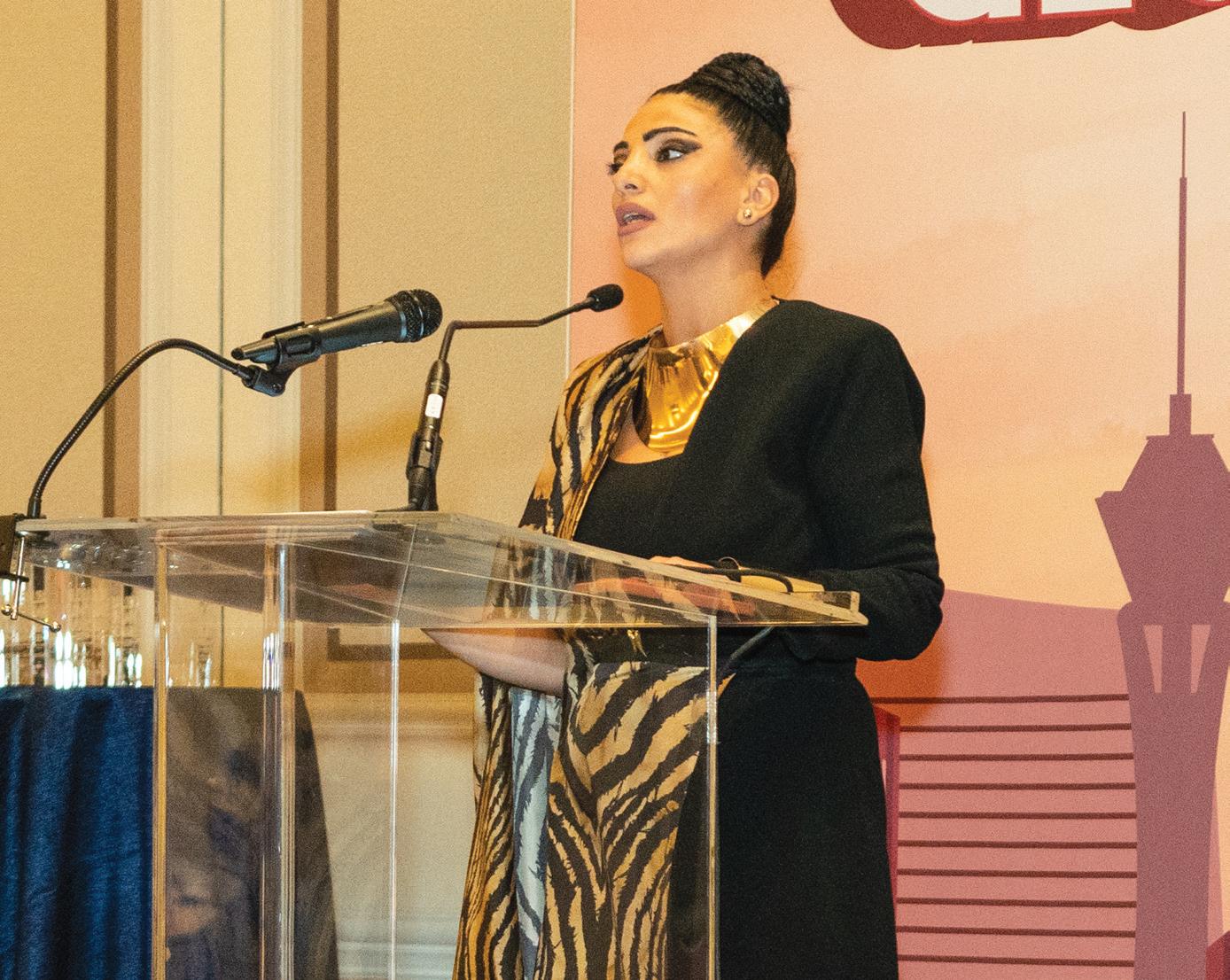
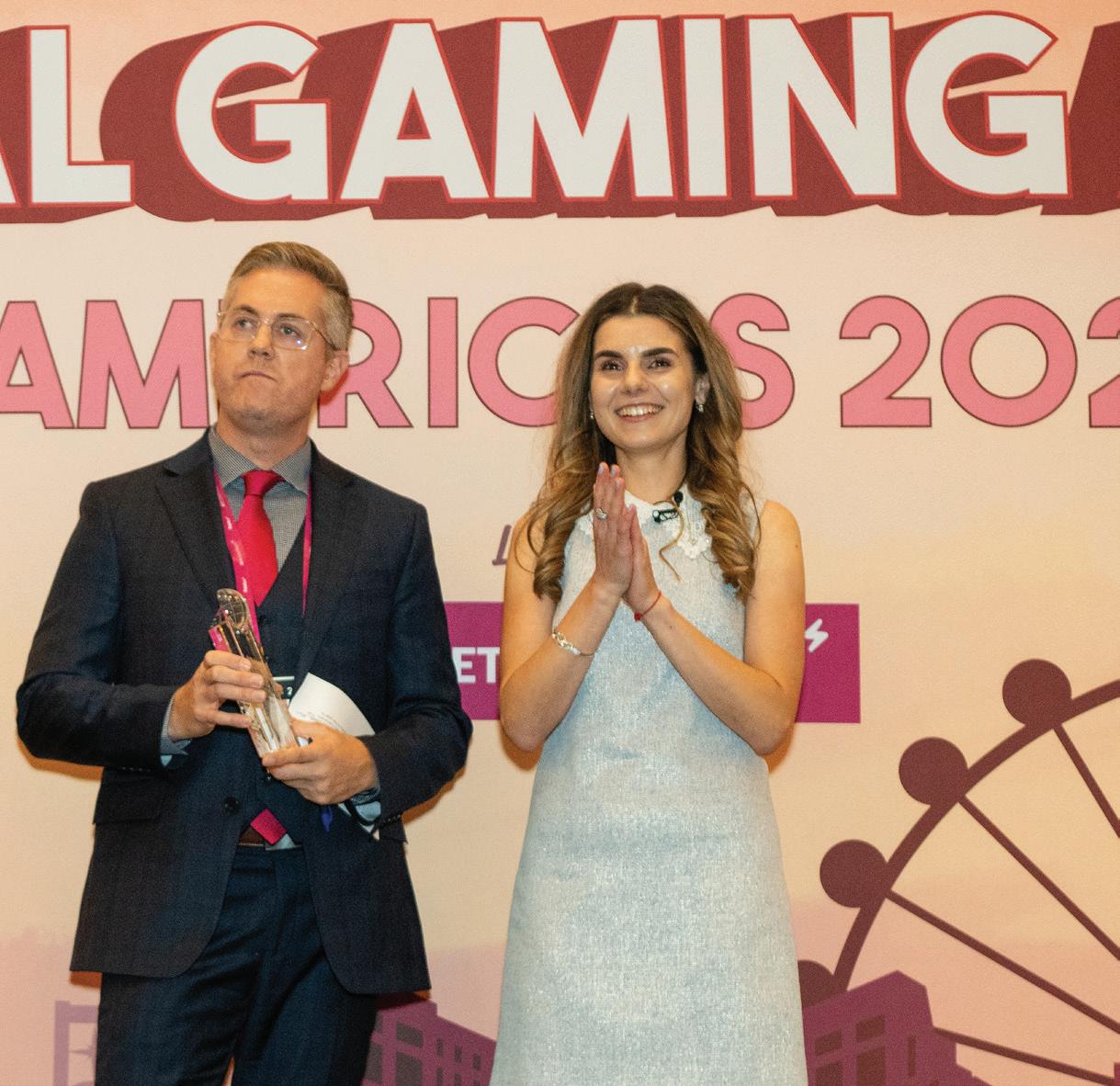
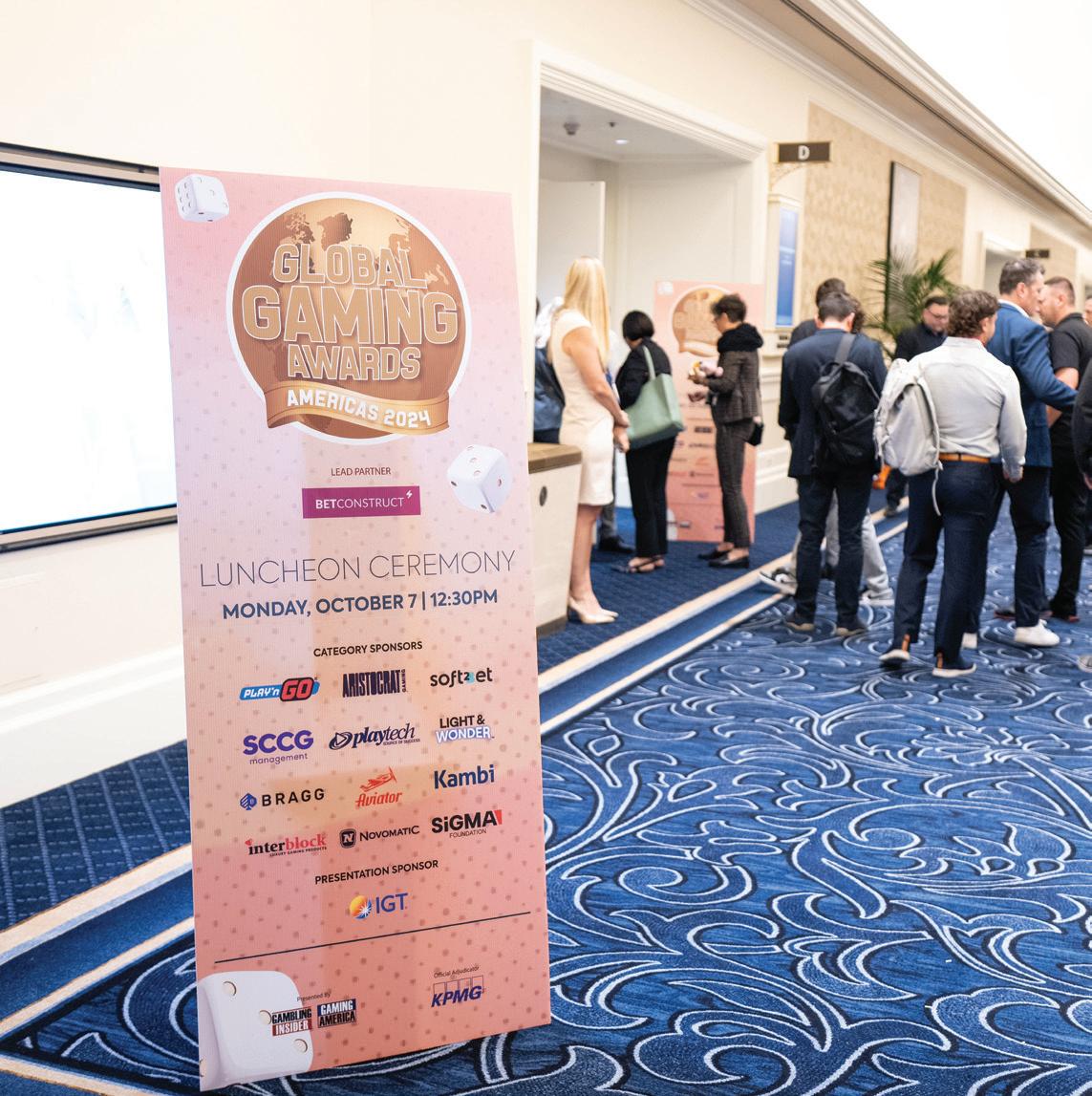




2024 has been a really fantastic year for our company and for our team of creators.
– Jon Wolfe, President Global Systems and Services, Light & Wonder
Sponsored by

This really belongs to all of the ladies and gentlemen that work for Wynn Resorts.
– Brian Gullbrants , Chief Operating Officer North America, Wynn Resorts
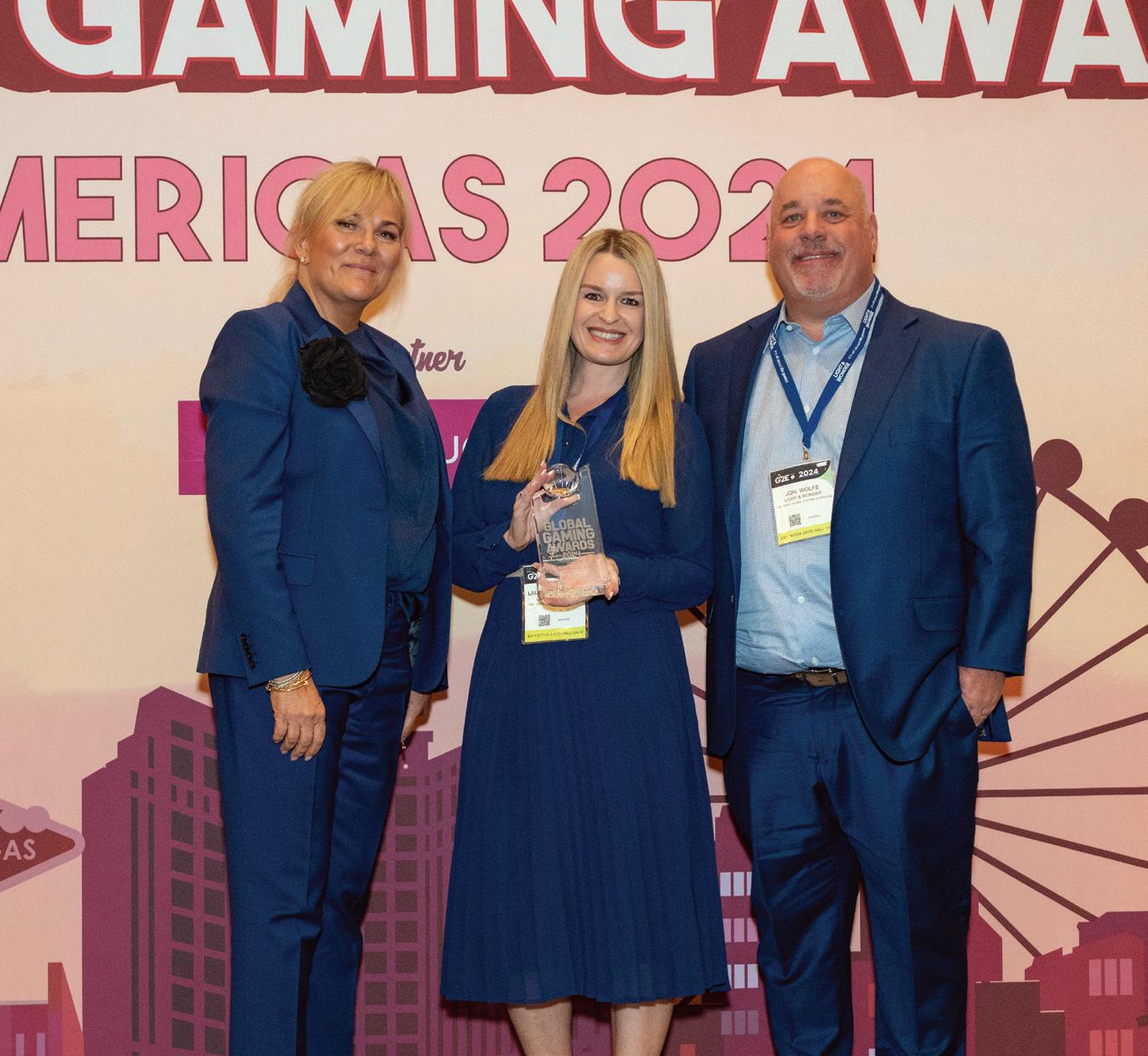















2024 was another great year for our company and we’re excited about 2025.


– Joe Kaminkow , Chief Innovation Officer, Aristocrat Gaming











It was a hard fought battle but we’re so excited to see the NFL game be recognized.


– Joe Kaminkow, Chief Innovation Officer, Aristocrat Gaming






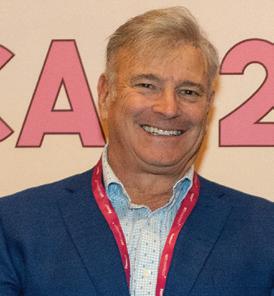



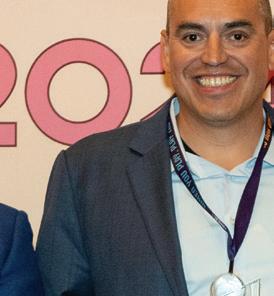




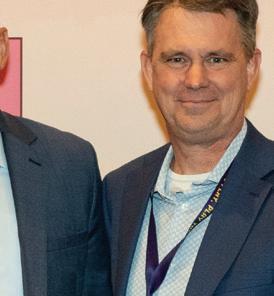
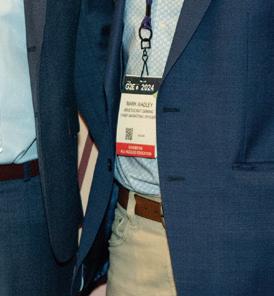

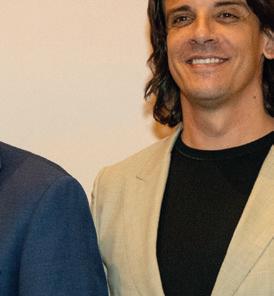
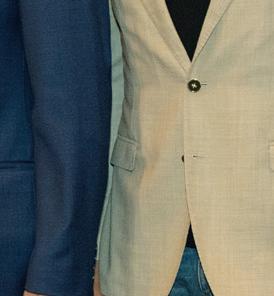






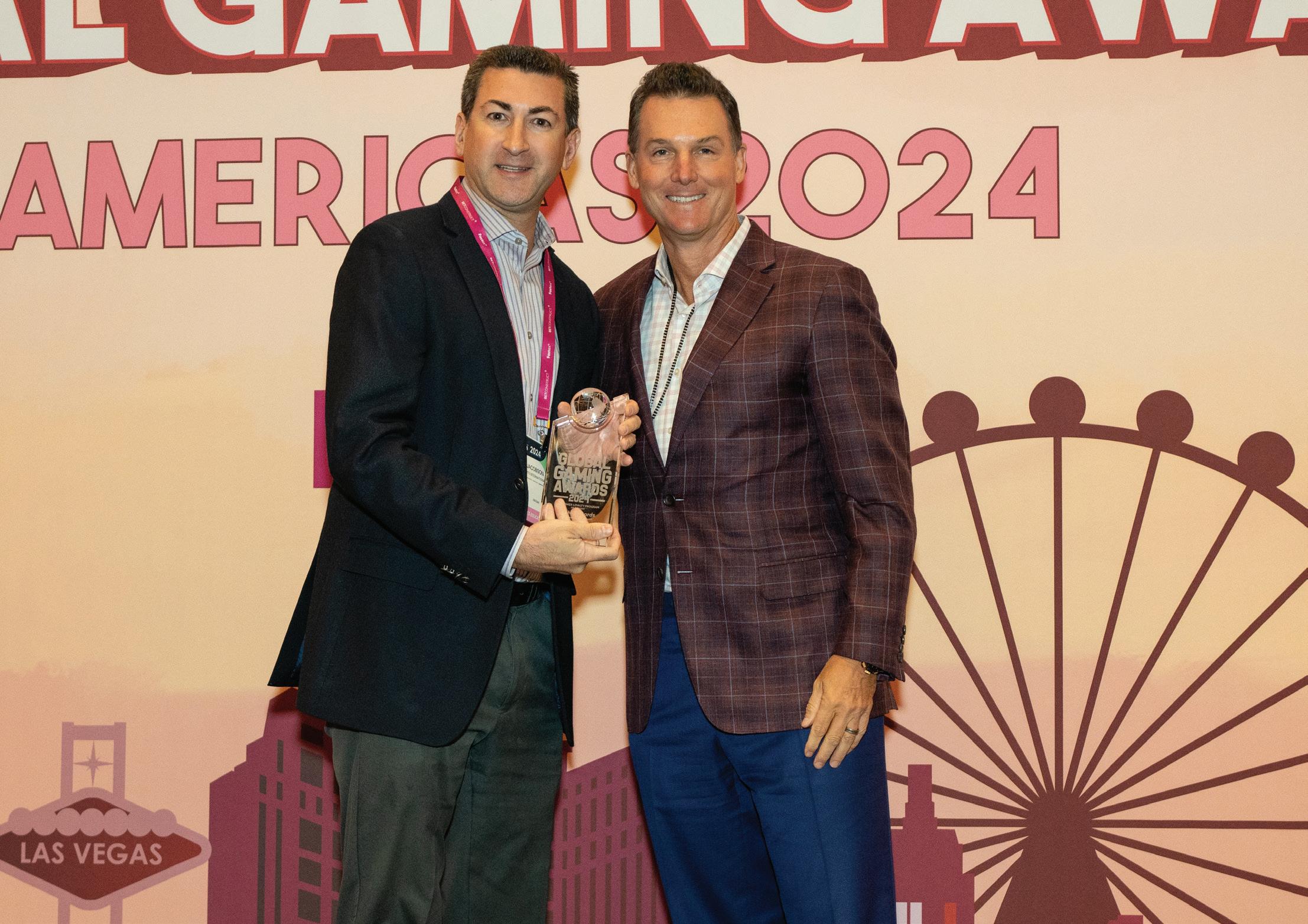
Sponsored by

MGM has a rich heritage in this important category and has once again shown its prestige as a multiple winner. A huge congratulations from the Global Gaming Awards.
– Julian Perry , Editor-in-Chief and COO, Gambling Insider


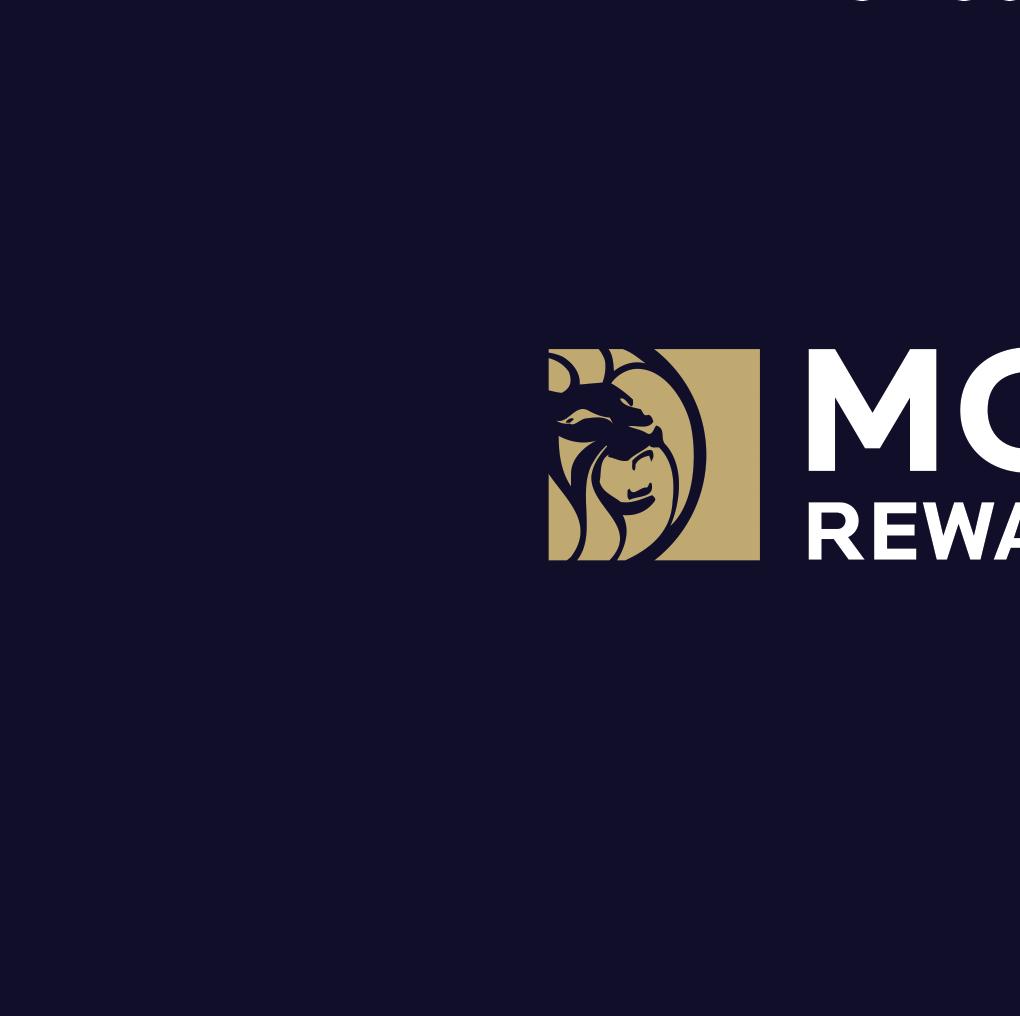


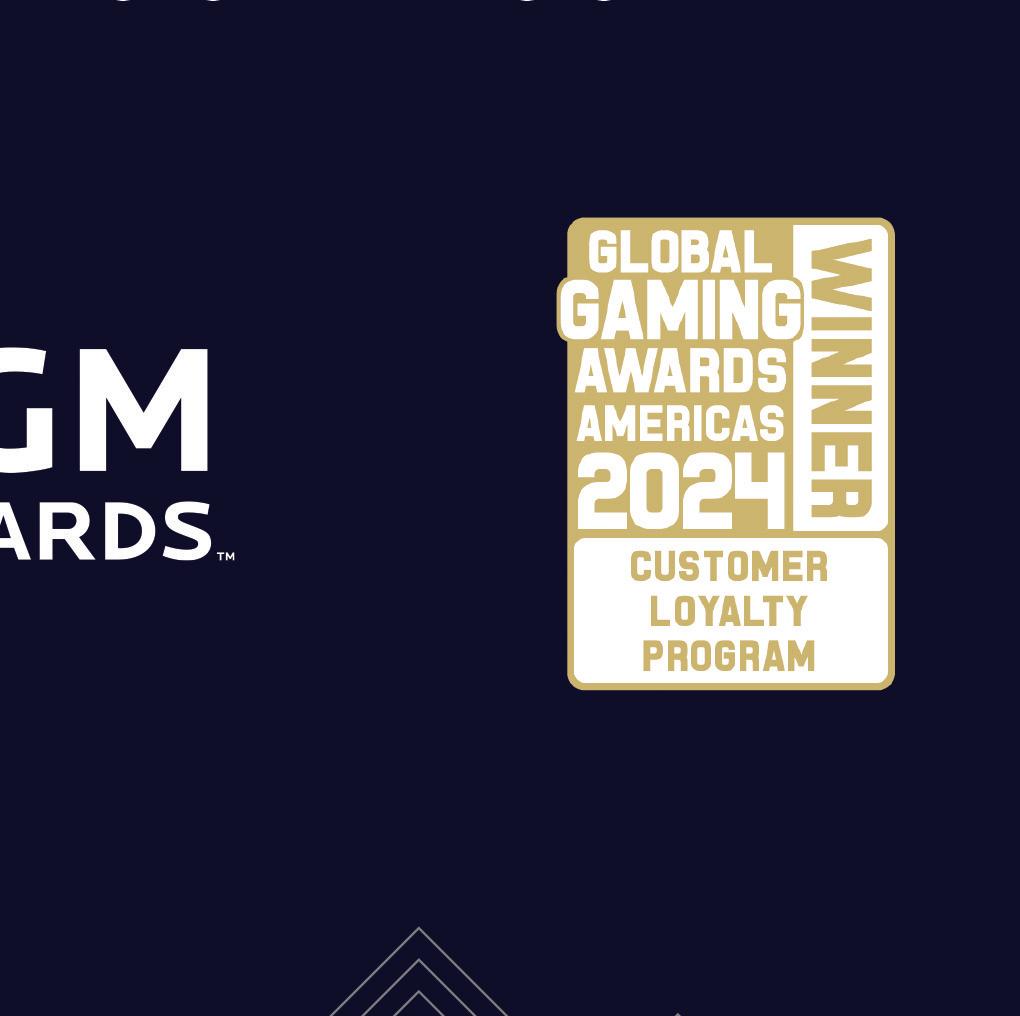



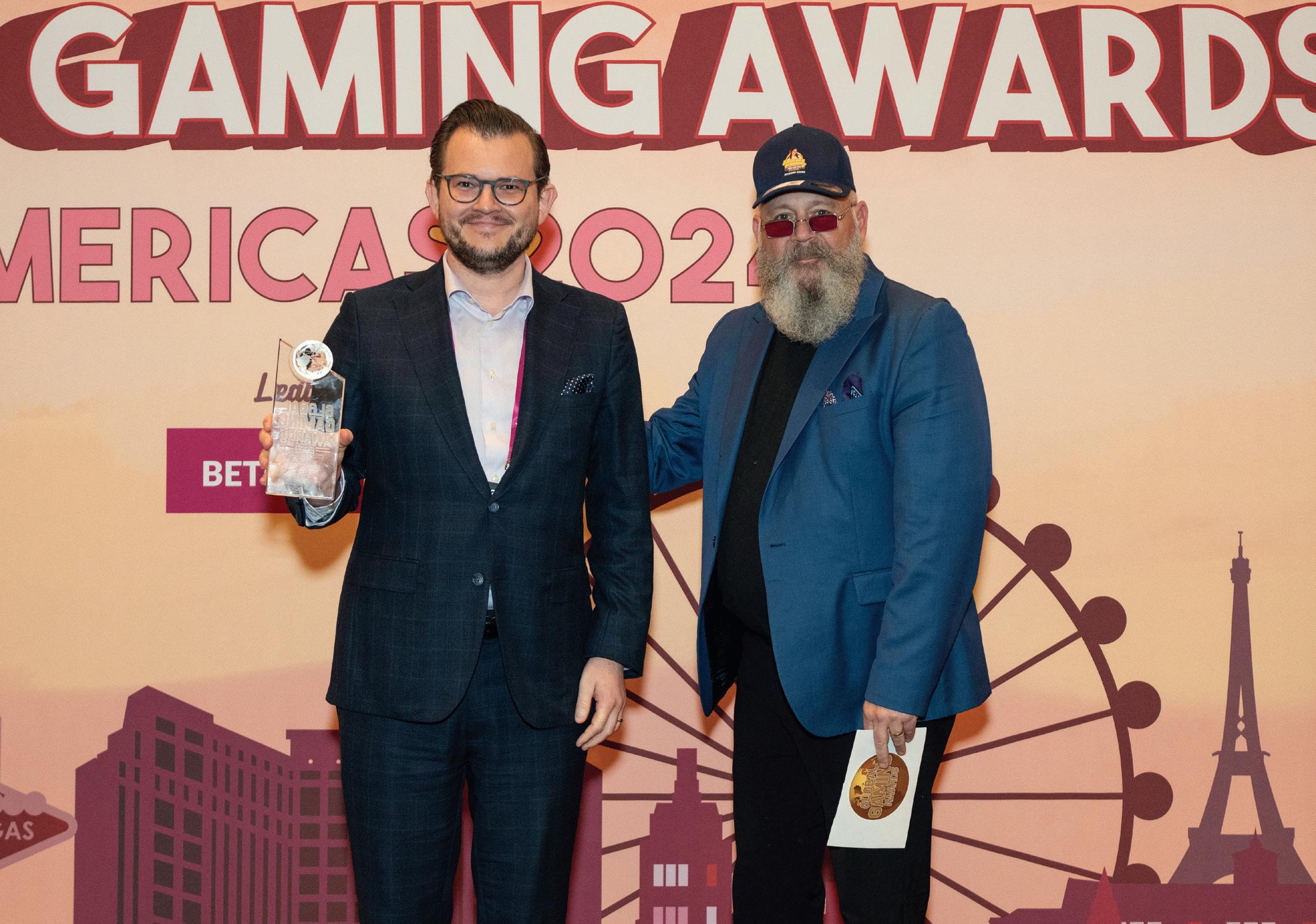
Sponsored by

We’re investing heavily to grow with our partners.
– Jacob Claesson , Chief Executive Officer North America, Evolution



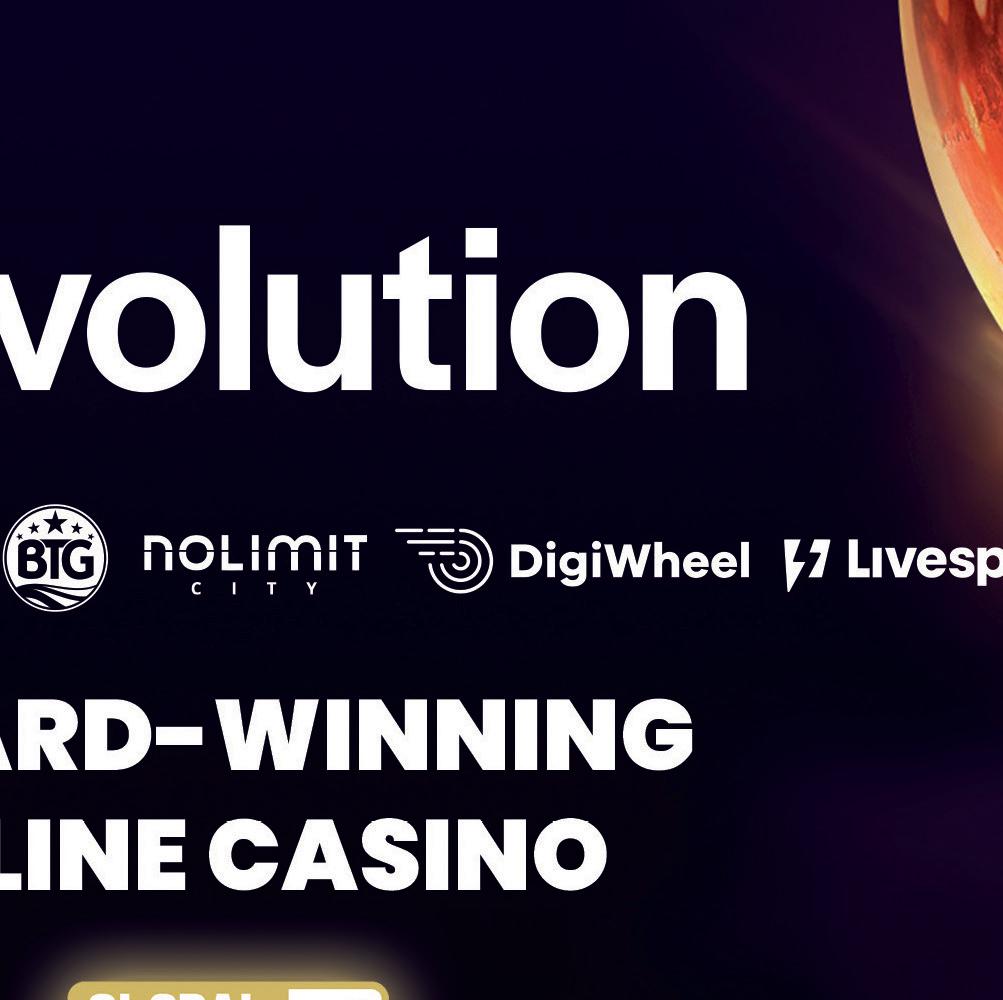





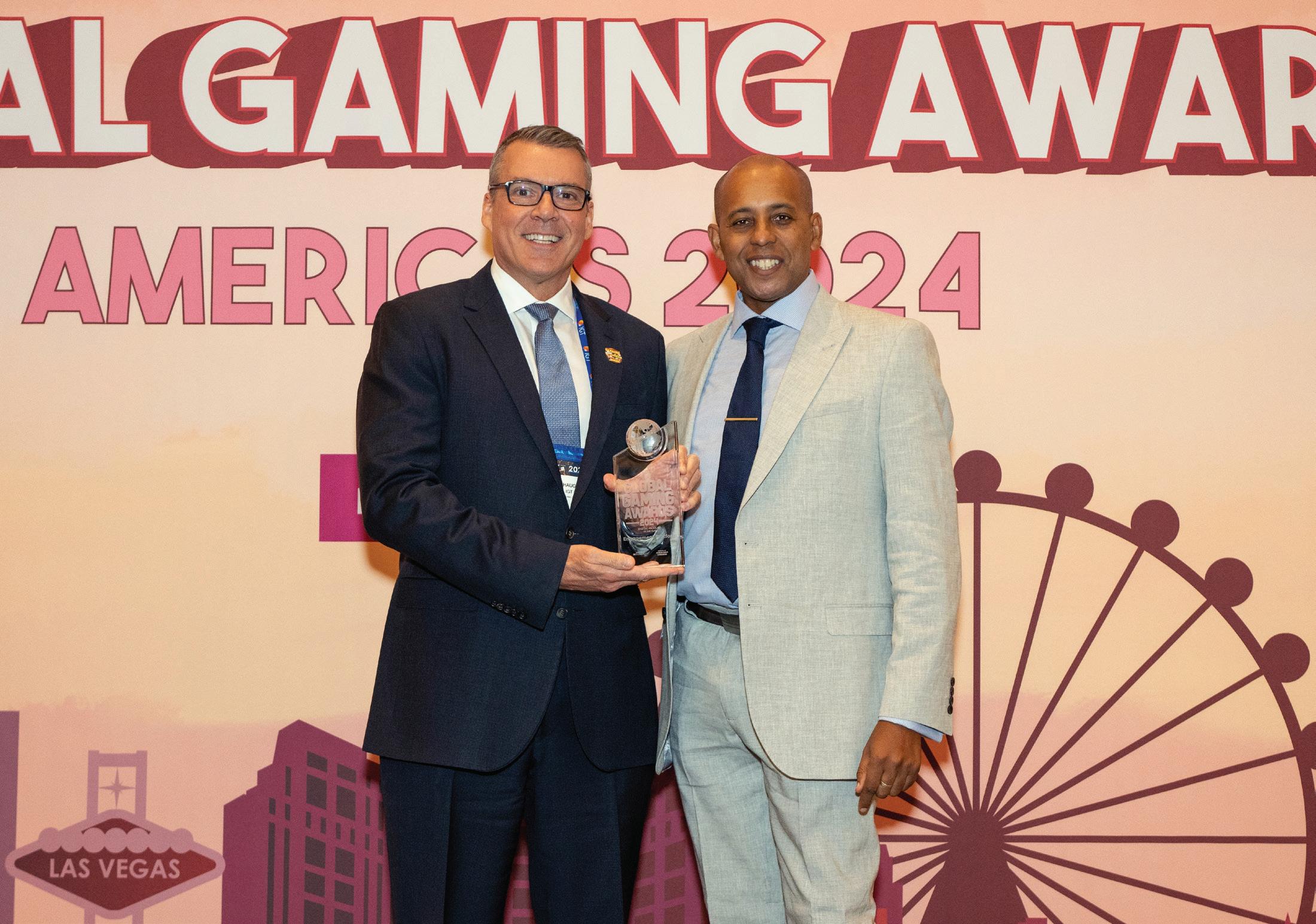
Hats off to the IGT PlayDigital team, it’s been another great year and all of your hard work has resulted in this phenomenal award.
– Phil O’Shaughnessy, Vice President Global Communications, Events and Sustainability, IGT

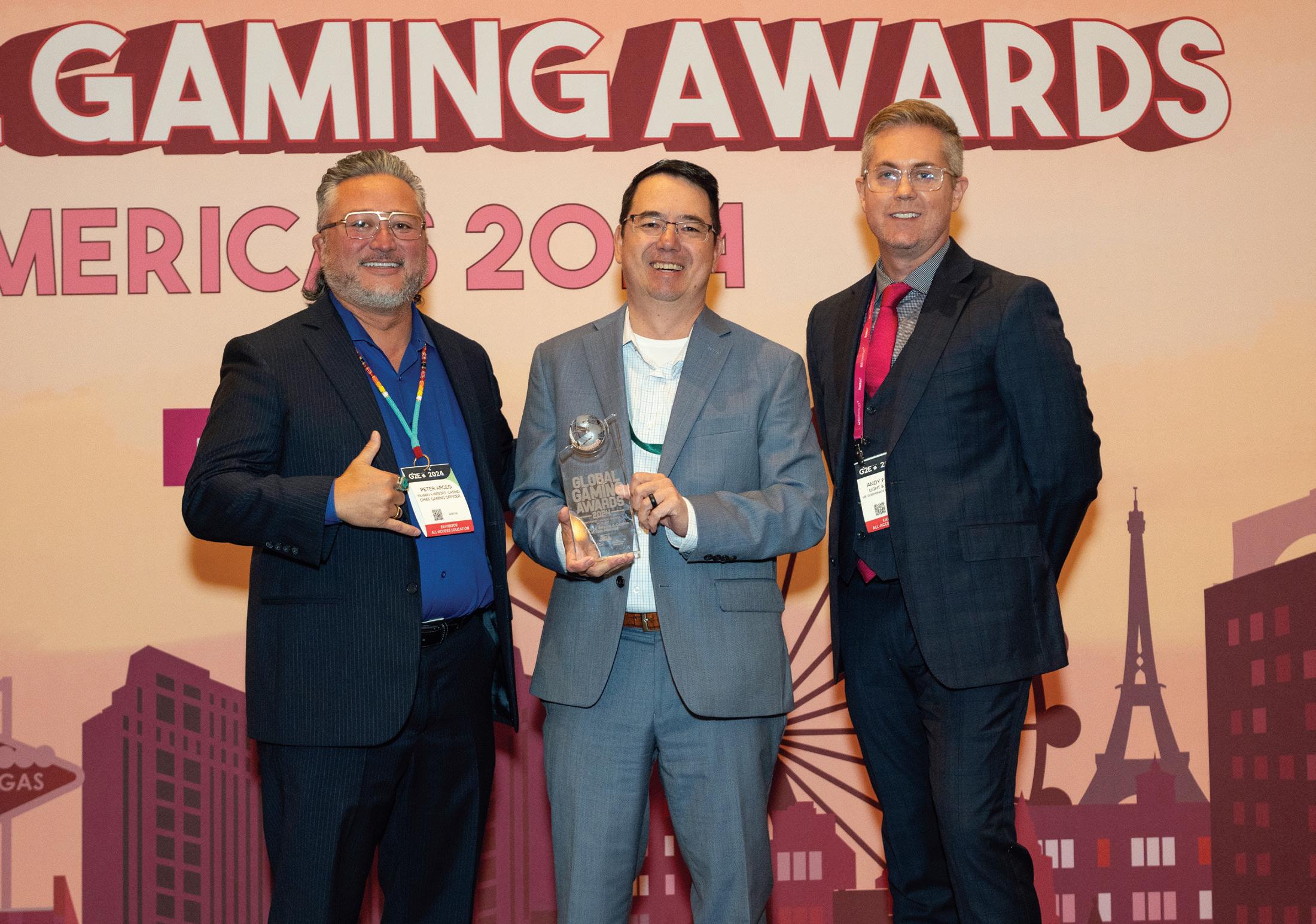
Sponsored by

This is something we’ve absolutely been wanting to get and this is more validation that we’re doing the right thing.
– Kenji Hall, General Manager - Casino, Yaamava’






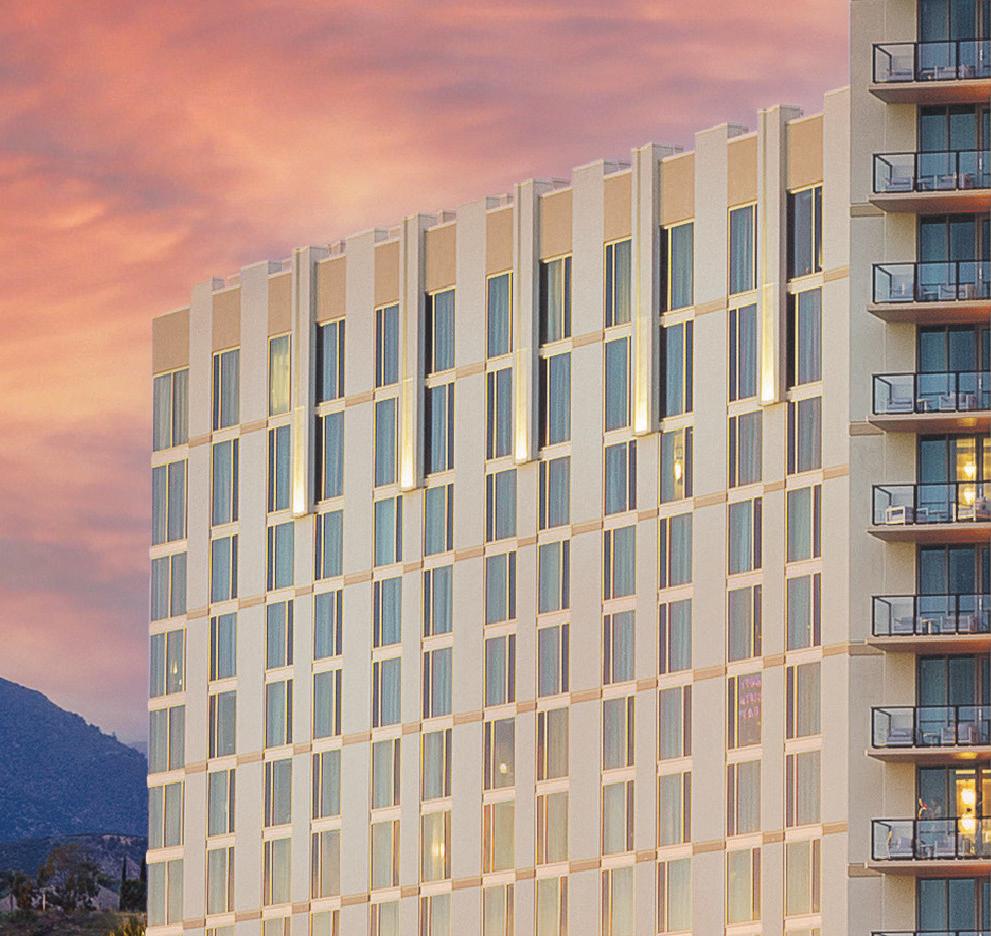








• More than 7,200 Slot Machines (The Most In the West)
• Over 140 Table Games
• 5 High-Limit Gaming Rooms
• 4-Star Resort with 432 rooms (128 suites)
• 5-Star Serrano Spa
• 4-Star The Pines Modern Steakhouse
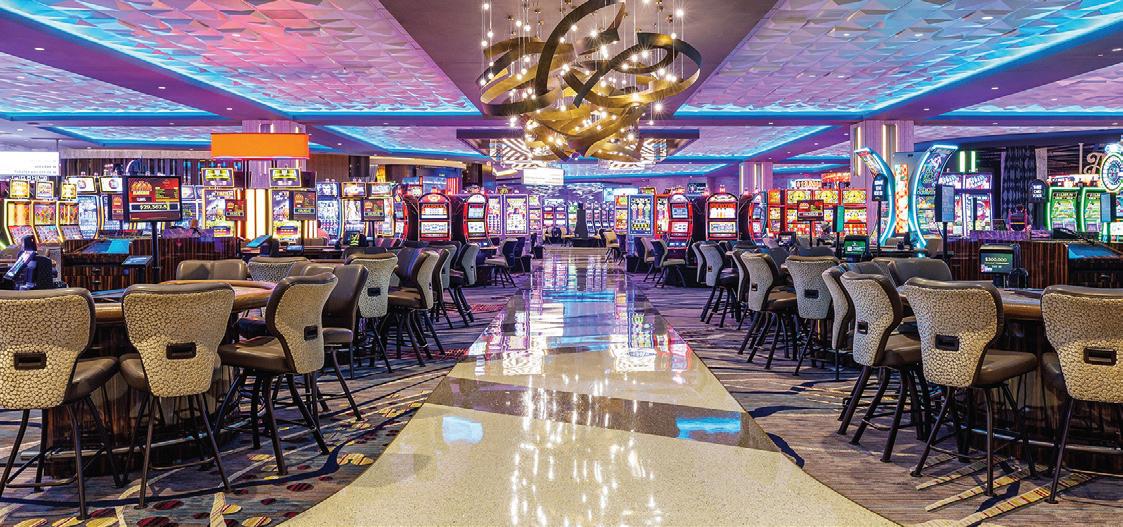




• Yaamava’ TheaterCalifornia’s #1 Entertainment Destination



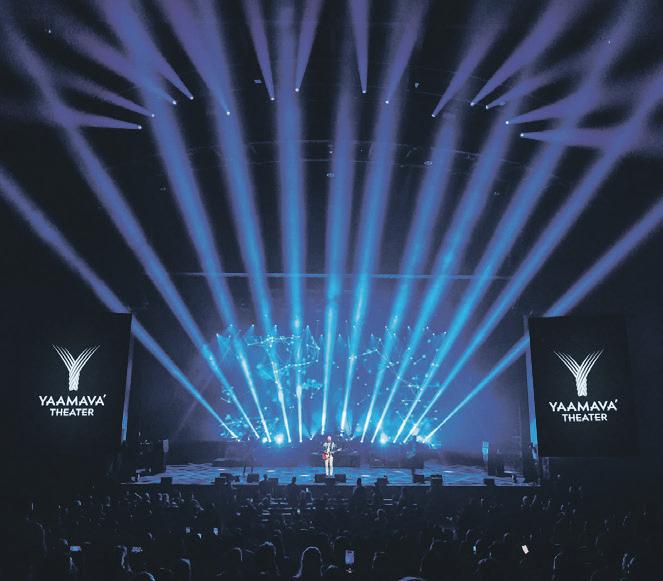






Sponsored by

We had a great 2024 and continue to win deals across America.
– James Letchford, Director of Pre-Sales Solutions, Kambi
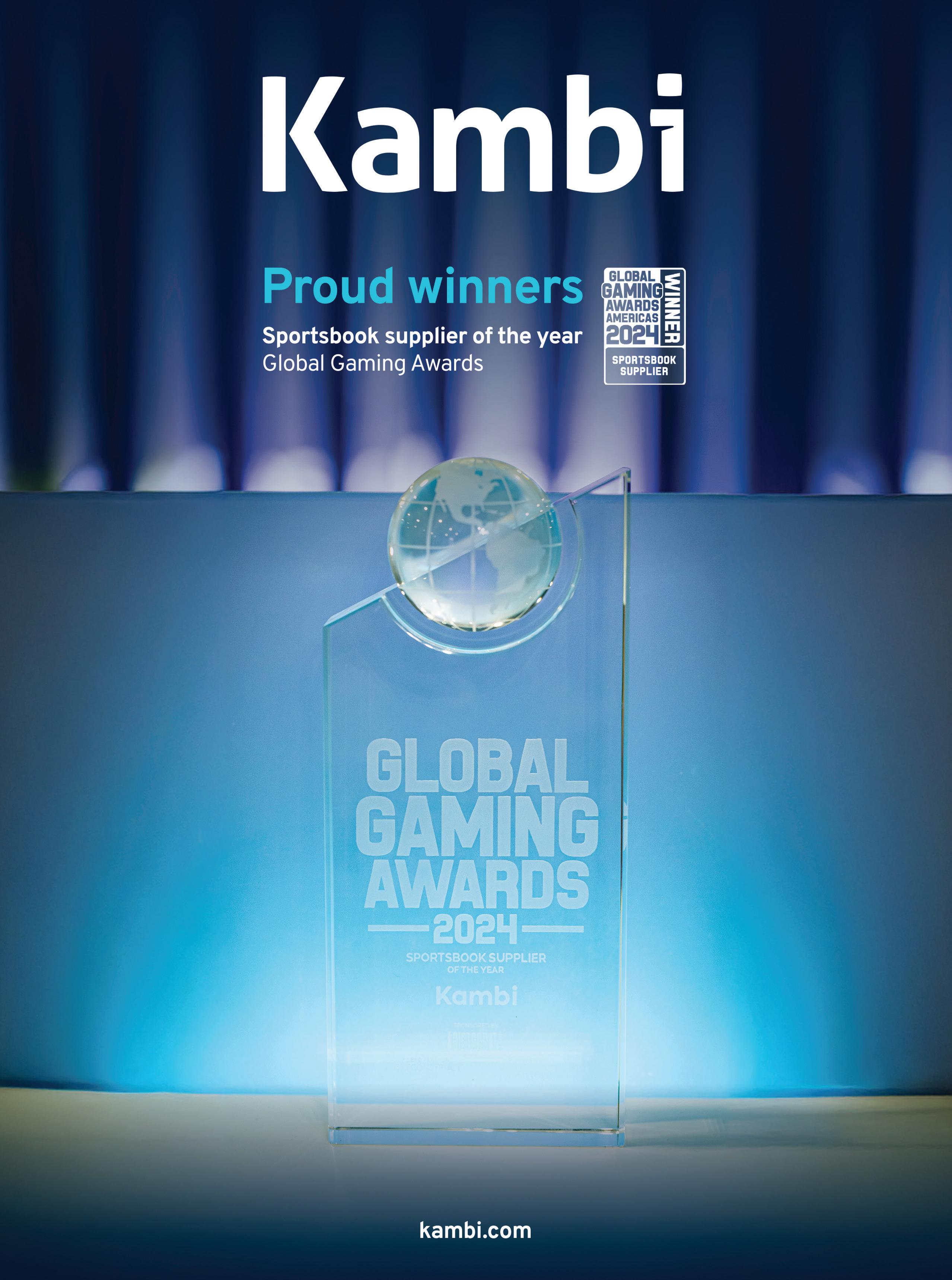


2024 was a very busy year for us; we just concluded a multi-million-dollar renovation. The casino looks fabulous and we did very well.
– David Francis , Executive Director of Slots, Atlantis Paradise Island



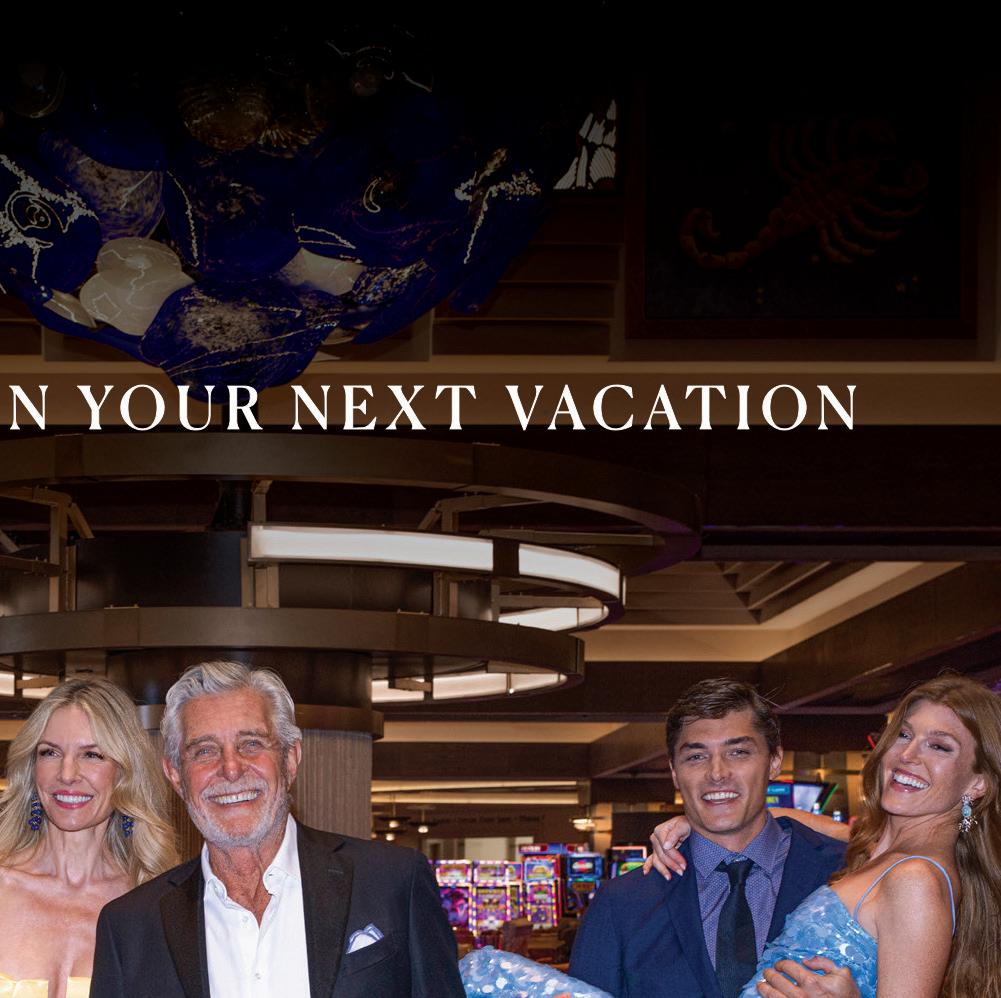
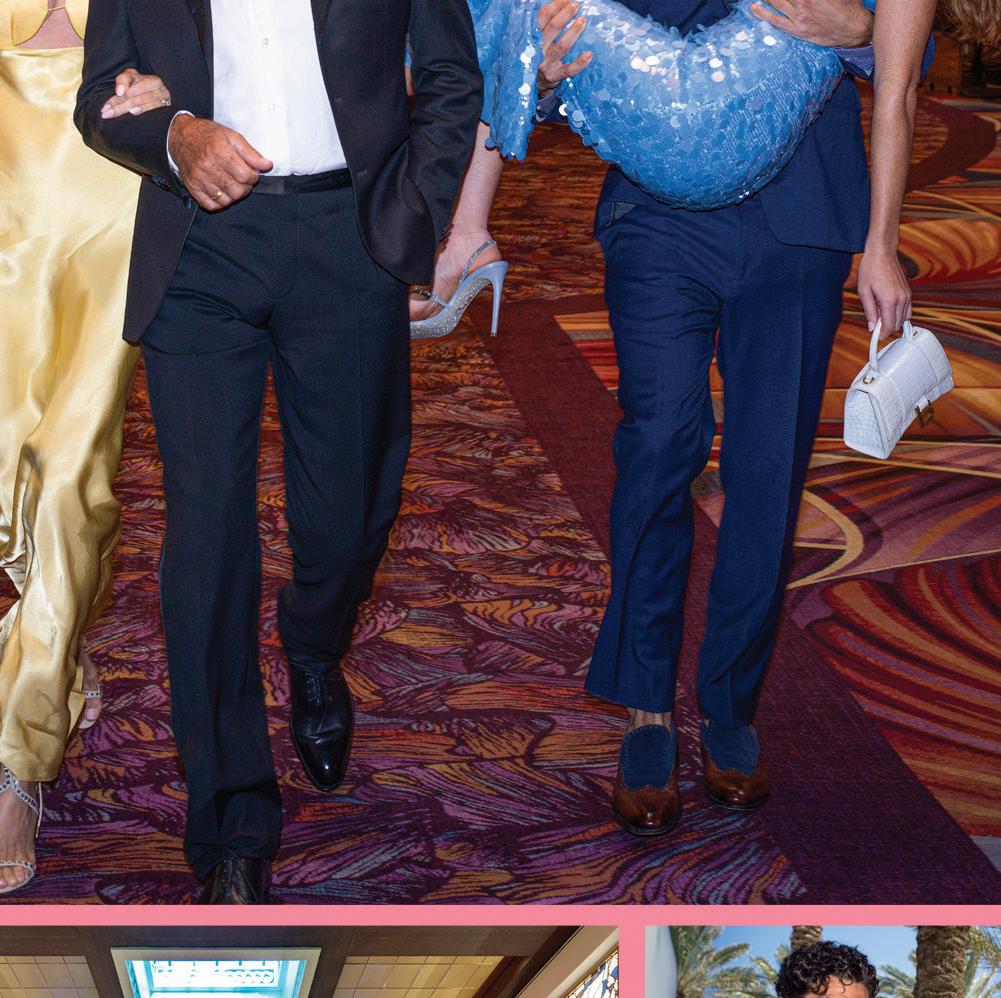




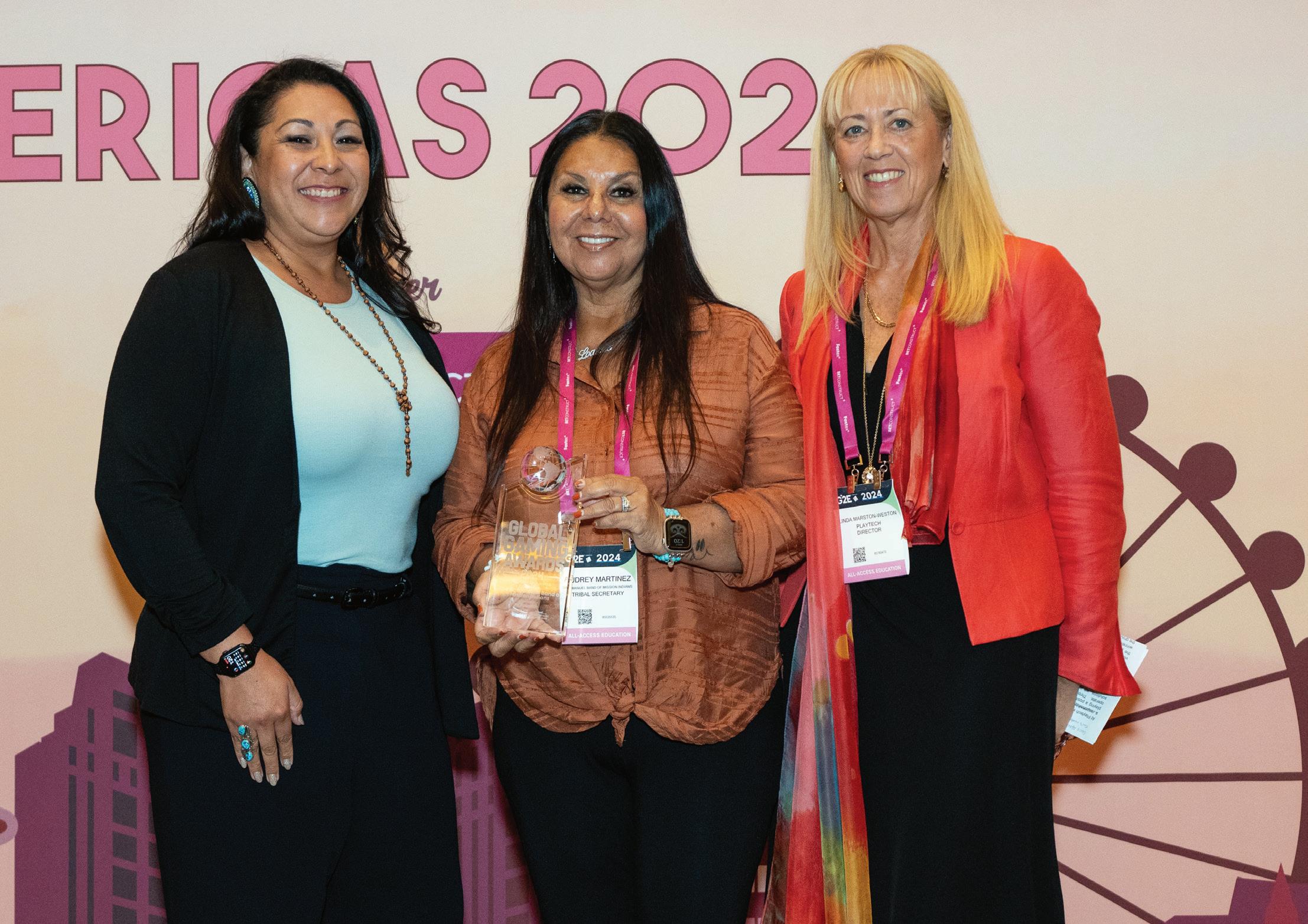

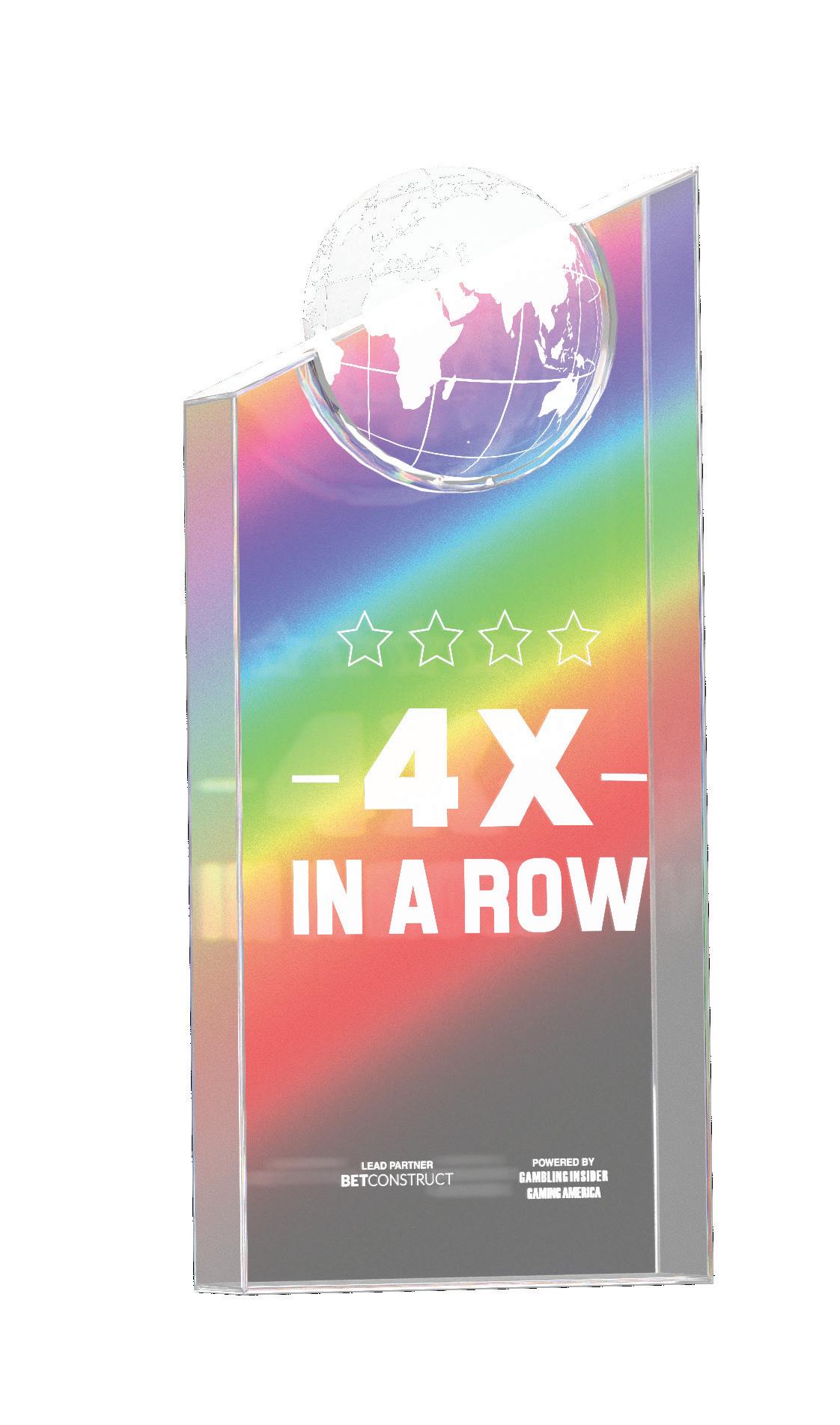
Sponsored by

This is an awesome opportunity to show how we give back to the community.
–
Audrey Martinez, Treasurer, San Manuel Band of Mission Indians












Thank you Gaming America Magazine and Global Gaming Awards, for recognizing the San Manuel Band of Mission Indians as the 2024 Responsible Business of the Year.

We are proud to be honored among our peers for our commitment to set the standard for tribal governments, gaming operations, hospitality businesses and philanthropic organizations connected to global gaming.



















Everyday we wake up and think, how do we delight our players and customers?






–
Hector Fernandez , Chief Executive Officer, Aristocrat Gaming






We’re very honored to have this award and thank you to the partners and operators that trust us.



– Landon Stanfield, Sr. Director of Product Management - Digital Payments, Everi


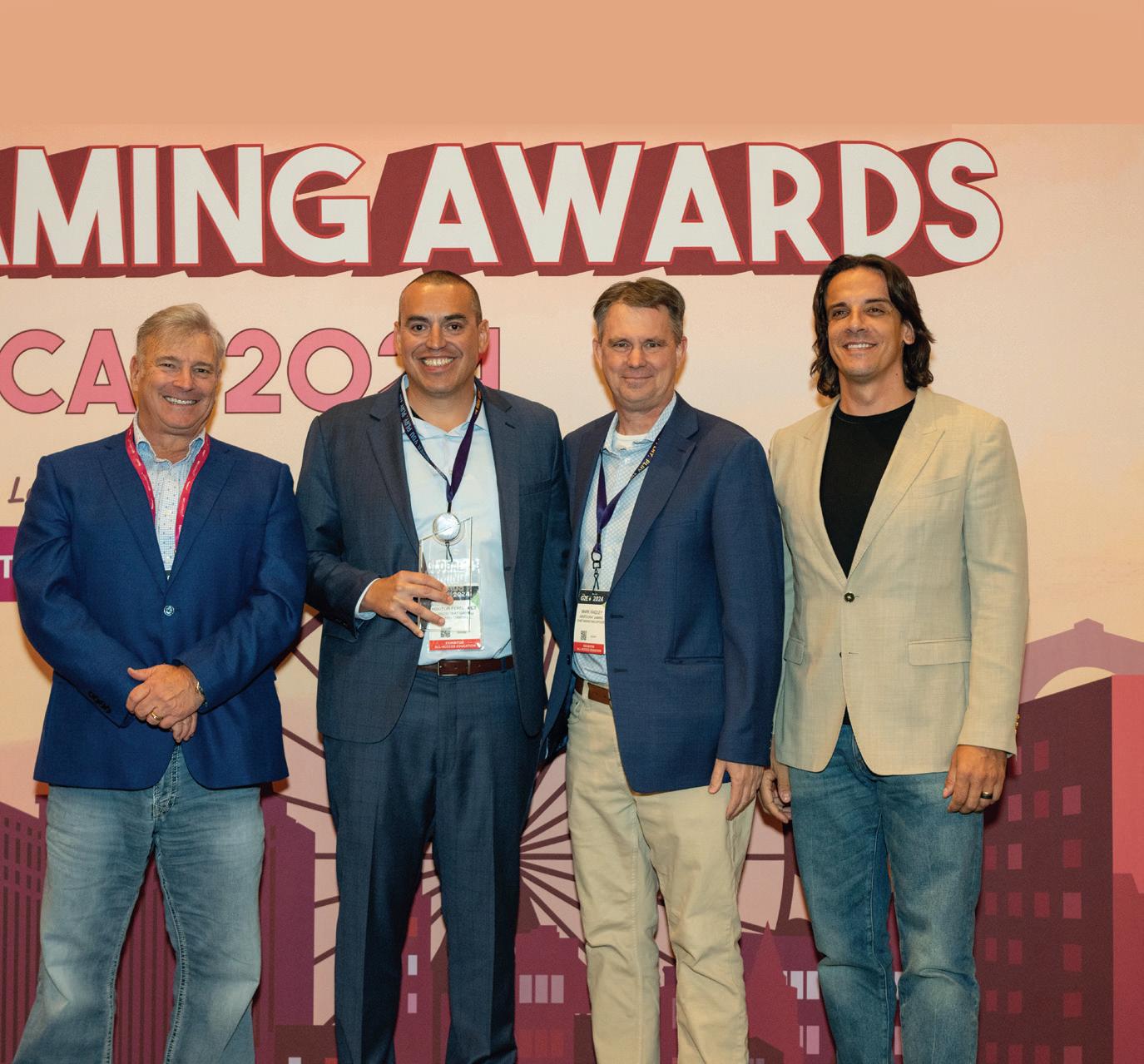
Sponsored by
ARISTOCRAT GAMING –NFL SUPER BOWL
It was a hard fought battle but we’re so excited to see the NFL game be recognized.
– Joe Kaminkow,
Chief Innovation Officer,
Aristocrat Gaming
Sponsored
by

AMY HOWE - CEO, FANDUEL
Thank you so much to the Global Gaming Awards for this incredibly honorable award.
– Amy Howe, Chief Executive Officer, FanDuel






Sponsored by

I’m incredibly proud of the 4,500 FanDuel employees around the world.
– Amy Howe, Chief Executive Officer, FanDuel

Sponsored by AMY HOWE - CEO, FANDUEL
Thank you so much to the Global Gaming Awards for this incredibly honorable award.
– Amy Howe, Chief Executive Officer, FanDuel
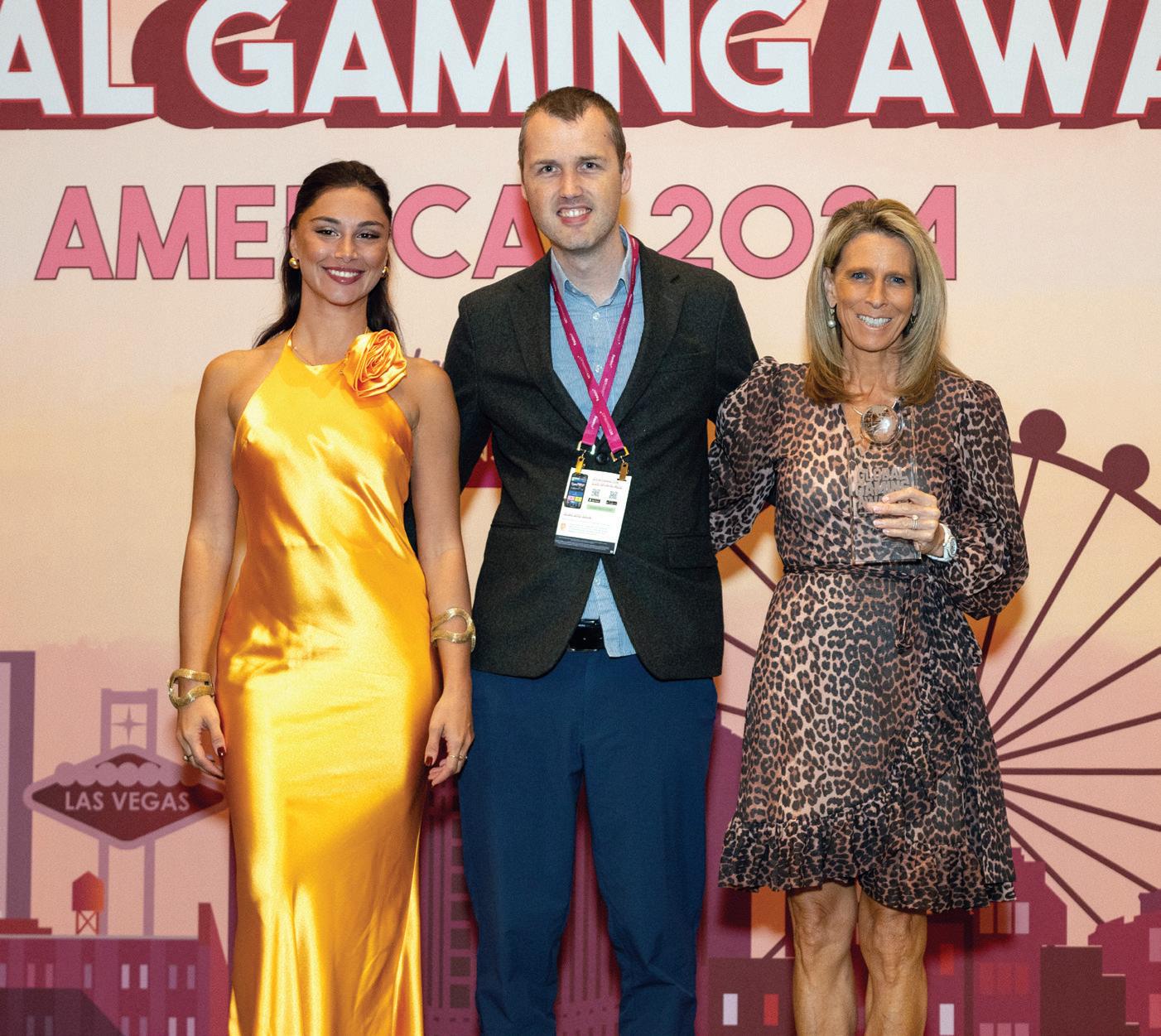





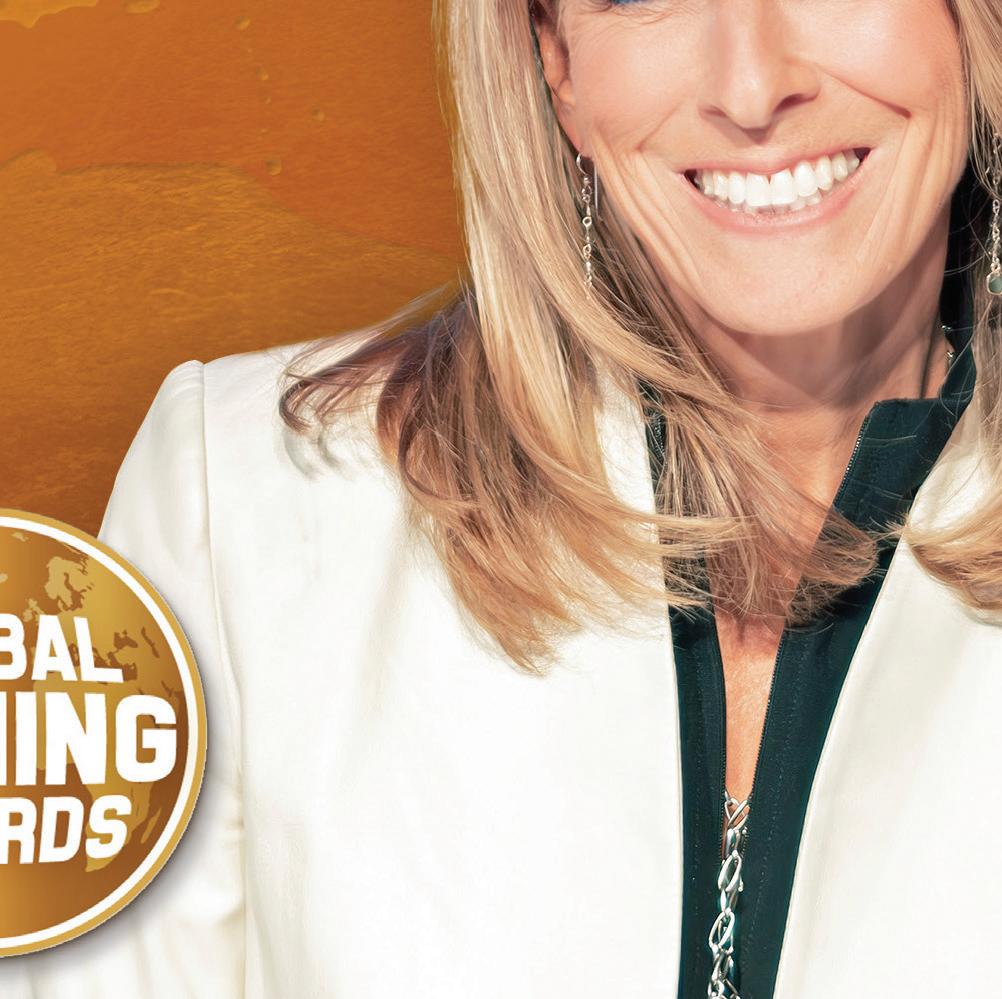




Nothing is new. Everything is new. Oliver Lovat, regular Gaming America columnist and resident Las Vegas expert, discusses what the next generation of casinos need to succeed, while also reflecting on Vegas' generational shift away from the Tropicana and Mirage.

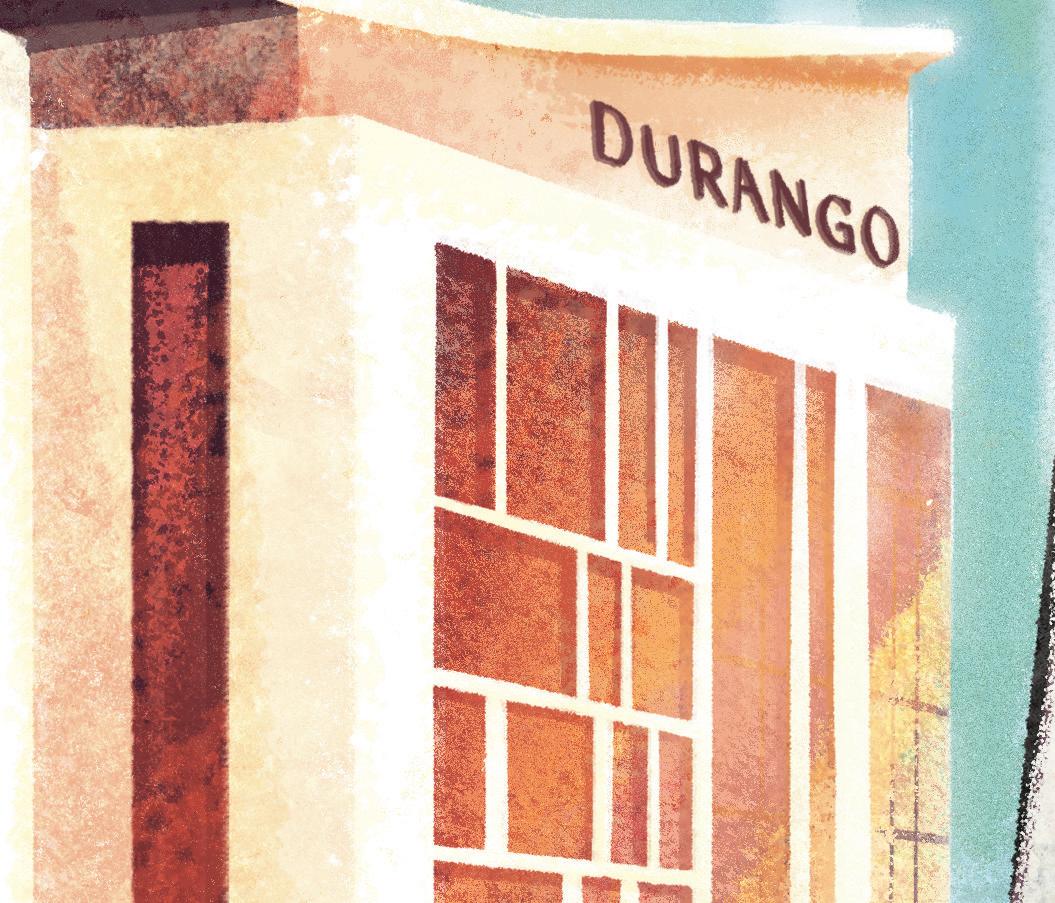



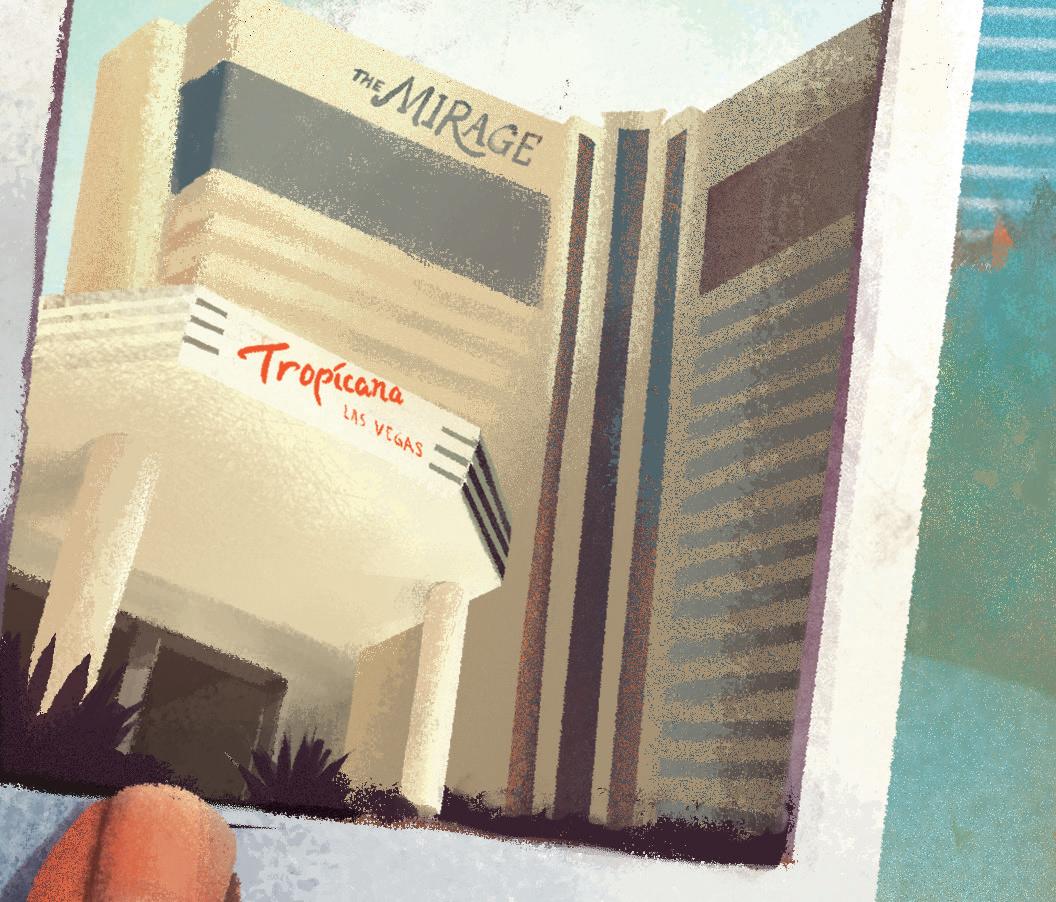






adapt and thrive, and those that will not. In this article, I will review and summarize development strategies that have led to industry success, and what they mean for future growth and development as the industry enters a new era. The Durango is also part of this Las Vegas future, as we cover in our interview with David Horn on page 18.
We all have stories and events that have shaped our thinking. These are important. In some aspects, my own route to working in casino development and strategy may be unique. In other ways, it is very common.
One night in the mid-1990s, the BBC aired a documentary on Las Vegas’ hotel architecture, showing pirates, tigers and memorably a black pyramid in the desert. For someone that planned a career in real estate development, the insights shared were fascinating and I was hooked.
Yet many think casino development and management are easy; that if you build it, they will come. They are wrong. There are dozens of casino failures, underperforming properties and bad strategies implemented, repeatedly. There will be more.
As I have noted in the past, research points to just two drivers of sustainable competitive advantage. The first being location, the second customer loyalty. There are different types of customer and different drivers of loyalty, and those seeking to make investment decisions need to consider this carefully.
In 2025, existing operators will plan expansion, plot acquisitions and prove there is plenty of potential growth in global gaming. Nearly 70 years ago, on June 20 1955, Life Magazine’s cover asked the question, “Las Vegas – Is the boom overextended?” The proposition, somewhat ridiculous in hindsight, was that Las Vegas, the largest gambling market, had peaked. In that year, The Riviera, The Royal Nevada, Showboat, Moulin Rouge and Dunes joined the El Rancho, Sahara, Last Frontier, Sands, Desert Inn and The Flamingo as part of the city’s casino landscape. Not all the new properties survived the decade, but over time the city prospered, despite the proliferation of Tribal, national, international and digital gaming in subsequent decades. Today, the same question is being asked. There are two certainties in the coming years; there will be those businesses that

A couple of years later, on a road trip with my parents, we spent three days in Las Vegas, staying at The Mirage. At night, I walked down the Strip, observing the megaresort construction in progress. Back in the 1990s, there was nowhere on earth that matched the scale, the energy and the tangible optimism of Las Vegas. It inspired a generation of those that are now leaders in this industry.
My professional career in real estate investment, development and capital markets followed. From basement casinos in England to salons in Monte Carlo, the silent gambling dens in Asia and the vast floors of Tribal properties, I visited casinos across the world. Playing online poker (when you needed a CD to upload the software), I had a ringside seat watching the online providers grow from scrappy start-ups to global behemoths.
As regular readers may note, I wrote my MBA thesis on Strategic Competitive Advantage in Las Vegas casino resorts; afterwards I started teaching, writing and consulting about the casino and hospitality industries, moving to the USA nearly a decade ago to work here. The story of Las Vegas holds many lessons for those of us working in the industry.
Your location determines what type of business you wish to be. There are many things you can change within your four walls after construction; but once your property is built it cannot be moved. That is not to say that a remote location is terminal to your casino and, in certain cases, as Steve Wynn liked to say, “the destination makes the location.”
As we have seen in the successes of Tribal and regional casinos across the US, remoteness is not an impediment to visitation, indeed Las Vegas as a destination






































































OLIVER LOVAT is the CEO of The Denstone Group , that offers strategic consultancy in resort development. His research topics are Las Vegas Customer Behavior and Strategic Positioning of Casino Resorts.
was originally hours from any major tourist destination by car. However, obviously developing in a remote location with a single feeder market, you are always subject to a rival moving closer to that population, therefore eroding the competitive advantage. In global markets, current developments and recent openings in Japan and South Korea, alongside proposed developments in Brazil and Thailand, come with great development cost. In North America, Canadian side Niagara Falls may change its licensing restrictions to form a regional cluster, and increased US expansion in New York (and possibly Texas) will have significant consequences to existing and neighboring resorts, the majority of which are Tribal. Generally, the closer you are to a major population center, it is preferable in terms of longevity and casual play.




Casino expansion can either grow revenues holistically or cannibalize the existing geographic market; however the answers to long-term sustainability to geographic challenges are found in Nevada. Reno, Laughlin and Las Vegas have very different experiences and divergent outcomes. Indeed, Laughlin, once a prosperous destination, has fallen significantly below Washoe County in terms of gaming revenue, which in turn is being challenged by resurgent Downtown Las Vegas.
Therefore, the immediate decision facing new developers is whether to locate in a remote location with perhaps a monopoly or duopoly in a particular region, or be part of a cluster in an established or growth market?
detailed response, then your casino has a fundamental problem. (Gaming America sidenote: This is exactly what Derek Stevens said when we asked him what one's first consideration should be when building a new casino. It's exactly what he thought of first when introducing Circa to Downtown Las Vegas).
I recently took a group around Downtown Las Vegas, perhaps the most competitive market on earth. Back in the 1970s, Glitter Gulch was the home of gambling. Not the resort experience of the Strip, but a more concentrated market with properties packed into a narrow corridor with few discernable differences or impediments to customer migration.

History tells us that while there may be benefits to having few competitors, the major casino markets of Las Vegas, Atlantic City and Macau attract a different type of customer; and the clustering effect has the potential for revenue diversification and greater sustainability.








greater sustainability.











routinely moving between the




Reverting to the Las Vegas crisis in the mid-1950s, the casino product was generic with the experience formulaic, product nearly identical and the main differentiator, entertainment, routinely moving between the established properties. Even today, there is no significant differentiation in the gaming product, but in the last decade there has been a notable strategic imperative to increase customer loyalty. Unlike location, which is a singular decision, ongoing decision-making in positioning, investment and offer, to capture customer loyalty is consistently under review, with many successful strategies found in Las Vegas history and applied contemporaneously globally.
Sam Boyd, who had managed The Mint, Sahara and Plaza, built The California to attract tourists coming from the neighboring state. The name didn’t attract them; the offer was undifferentiated to all others in the market, and the property (and company) were facing oblivion. Boyd had also lived and worked in Hawaii. In a final throw, he marketed his property in that state, changed the offering to appeal to Hawaiian customers and they started coming. Boyd’s subsequent strategies focused on local customers around Las Vegas and, with a customer intimacy strategy in place, expanded across the USA into regional markets. Of course, by demographics is one way to segment customers, but today there are dozens of factors properties should consider.














Unlike decision-making in positioning, under review, with many contemporaneously globally.
Alternatively, by looking outside the existing customer segments for unmet demand potential, opportunities remain. Identifying your customer is the first and crucial part of the equation, but it is not the full answer. The next layer is understanding your customer’s needs in order to determine their loyalty drivers. And, again, the case studies for success are found in Las Vegas’ evolution.





The first question asked is, who is your customer? If you can’t offer a

Based on the Las Vegas experience, the spectacle was far more sophisticated than many customers can appreciate, and casino design operates on multiple levels. Not only are modern casino resorts shopping malls
for experiences, but they have to connect with and communicate with their chosen customer.
Just as I initially engaged with Las Vegas through a documentary, there were always movie and TV show appearances with casinos featuring alongside the stars of the day. From Ocean’s 11, Diamonds Are Forever, Charlie’s Angels, and celebrities aligning with resorts, notably Orson Welles’ informercials on gambling. Some, like Caesars Palace had a much-reported party on opening night, implosions became national events, and openings featured advertisements – even TV specials – to showcase the narrative of the property. The use of media to sell Las Vegas’ casinos has been something that has been part of developing the brand – and story –into modern Americana.
The primary aspect of casino design and architecture is communicating a marketing message. Not just what is inside the building, but to entice the customer that the property is seeking to attract. From the post-modern Mediterranean cypress trees and Greco-Roman fountains of Caesars Palace, faux-Circus tents, or contemporary urban atheistic of the present generation, the best casino architecture is that which identifies and resonates with the target customer.
From the initial encounter, a well-designed property tells a story. Initially in Las Vegas casinos, that story was about luxury and aspiration. This evolved to escapism and elegance. As the market became increasingly competitive, some resorts communicated value, amenity and action. Family, fun and fantasy followed. As casino architecture matured, aspects of storytelling were weaved into all elements from top to bottom. The period of 1990s theming was the most obvious, but even the more contemporary designs, notably Wynn, Cosmopolitan and Fontainebleau, contain more subtle elements of theming that appeal to their target customer’s psychology. It isn’t just what you want your customer
to do, it is how you want them to feel. Keeping this promise throughout the resort is the secret of modern casino design and hospitality management. Property storytelling, inspired by the cinematic architecture and growth of
modern media, has evolved with Las Vegas’ growth. There are lessons to be taken.
The theory of loyalty is rooted in customer lifetime value, which we explored in a

previous issue. The drivers of loyalty are of course customer dependent, but all assume the properties of cultivating a relationship between customer and property/operator. Over decades, significant investment has been made in this area. Once a driver of competitive advantage, there is near ubiquity in players cards featuring tiers, free play and benefits, including comps. This aspect, plus price, can be defined as transactional loyalty. Amenities, facilities and range of offering that is required for a particular customer, whether as a business traveler or as leisure tourist, we define as functional loyalty. The use of brands, entertainers, affiliations that are aligned with a particular customer demographic that will make that customer choose that property or retain their loyalty, is expressed as Tribal loyalty. All of these are part of the relationship building exercise and the most common applications in general
more strategic approach, something that historically in Las Vegas, we have perfected. It wasn’t an accident that at The Mirage, Bellagio or Wynn, the lighting was an attractive tone, that the scent evoked a particular sense, or that the sound of water reminded you of tropical shores. Neither was it an accident that you were greeted by a smile, the dealers were able to converse in a friendly and open manner or that customers felt elevated – even special – when coming to Las Vegas casinos. To some this is the “hospitality” experience, but to those that work in this sector, it is an elevated craft in terms of creating both emotional and aspiration loyalty. Las Vegas casinos have taken conscious steps to create positive experiences and interactions, that by design, elicit an emotional response and embed as memories.
Whether it is a past experience, that when
hospitality experience forged in Las Vegas different from any other. It is about storytelling, design, operations, but also the requirement to understand the psychology of the customer and engage on an emotional basis.
In the 1990s and 2000s, casino operators began to expand their regional footprint in newly deregulated US markets. The case study is Harrah’s. By using their national infrastructure and the technological advantage of creating and managing a distributed players database (where players' cards could be used in any Harrah’s property and points accrued) Harrah’s could have more regular contact with customers than the traditional annual visit to Las Vegas provided.
Three decades later, online casino and


still the hospitality business. Having given this some further thought, I wish to review my conclusions: looking at 2025, the landscape has changed. Although there is much we can learn from our past and that nothing is new, this fails to acknowledge that, in terms of technology, in fact, everything is new.
Indeed, in my Generation Next column earlier this year, I explored the development of space and time in relation to managing land-based casinos. With online gaming, there is no space required and the product can be accessed anytime, anywhere.
The Tropicana was formative when it opened in 1957. Inspired by Miami’s Fontainebleau (and built by part-owner of that property), it
megaresort, built for entertainment and fantasy, ushering in modern Las Vegas. It knew who its customer was – the baby boomer generation – and met their needs, both physical and emotional. At time of writing, it is closed and is slowly being removed of every legacy characteristic to make way for the new Hard Rock.
Their exit only reminds us that these properties – with all their collective memory – were built for their generations. What we also know is that existing customers are more loyal than ever before but are a declining demographic. The future growth is in younger customers and there is space –either in Las Vegas or elsewhere – for the new icon that defines the next generation.
We know there needs to be storytelling, a brand and design created. The next generation of customer seeks exploration and discovery, adventure and surprises, and message
In this new age of immediate global content distribution, the opportunities are endless. And with the benefit of understanding the drivers of strategic competitive advantage, we can apply all the loyalty lessons from the outset, with the opportunity to build close intimate relationships that will last decades. There are very few groups that have the skills and vision to successfully strategize, plan, build, open and operate a new casino resort from scratch. Many outsiders have come to Las Vegas, showing the Nevadans how to do it, thinking that they know better. As we saw in the 1990s era, the most successful openings came from those that were already in and understood the market. Mistakes are often made by those that fail to appreciate or understand the lessons of the past.
Looking forward, whether in Las Vegas or in another market, the opportunity



After regulatory limbo, sports betting in Brazil is moving towards legal certainty – by Eduardo Carvalhaes, partner in Public Law and Regulation at Lefosse, and Karen Coutinho , counsel in Public Law and Regulation at Lefosse.
The latest list of authorized companies to operate sports betting in Brazil during a transition period – effective until December 31 this year – includes 100 companies with more than 200 websites and trademarks. At the state level, 26 companies have already received authorization by four Brazilian states. This number exceeded market estimates and could yield up to R$3bn (US$170m) to the Brazilian Ministry of Finance this year, solely from license fees. For the first time in recent years, both Brazilian and foreign players recognize that regulation is a crucial step for the development of this activity in the country and have the necessary confidence to make substantial investments.
The deadline for companies operating in Brazil to comply with legal and regulatory provisions governing fixed-odds betting (widely referred to as sports betting) is set for December 31, 2024, under the regulations issued by the Secretariat of Prizes and Betting of the Brazilian Ministry of Finance (SPA/ MF, in the Portuguese abbreviation). This is because, starting January 1, 2025, companies conducting fixed-odds betting in Brazil without authorization from SPA/ MF will be subject to relevant penalties.
However, in light of recent news regarding allegations of illicit activities
in the betting sector in Brazil and various operations conducted by the Federal Police, on September 17 2024, the SPA/ MF has determined that only companies actively operating and that submitted an authorization request to SPA/MF by this date will qualify for the transition period. The assessment of whether a company falls within the adaptation period resulted in a list of authorized companies, and, effective from this date, fixed-odds betting activities are prohibited for entities lacking SPA/MF authorization or that failed to apply by the stipulated deadline.
These provisionally authorized companies, in turn, provided their active brands and respective internet domains where they will offer services during the adaptation period. Consequently, if any website is found conducting unauthorized fixed-odds betting, notifications will be issued to initiate blocking measures.
After this initial milestone, 2025 has become a key moment for the sector. From January 1 2025, all the regulations published in recent months by the SPA/ MF will take effect. It is expected that all unauthorized operators and those that fail to comply with the rules will be appropriately penalized and banned from operating in Brazil. These sanctions apply not only to simple rule violations,
such as operating exclusively on websites with the domain ‘.bet.br’, but also to guidelines related to advertising, payment transactions, and anti-money laundering policies.
Therefore, in this complex chain of involved agents, in addition to the operators currently adapting to the new regulatory landscape of the sector, financial and payment institutions, marketing companies, influencers, soccer teams and technology companies must seek information to adjust, and avoid being held accountable or exposed, each to varying degrees, due to their partnerships.
Until the publication of the Brazilian Federal Law No. 13,756/2018, sports betting was considered gambling, which classified it as a criminal offense subject to imprisonment and fines under the Brazilian Law of Misdemeanors.
With the establishment of these bets as a lottery modality, which is a public service, fixed-odds betting has become expressly permitted by law. However, the absence of specific regulation created a regulatory void, leading to various uncertainties for all parties involved. As a result, a clear trend emerged with the exponential growth of
companies engaging in this activity within Brazil through platforms based abroad, operating without paying taxes despite the substantial sums involved. This situation further confused bettors who naturally lacked visibility into these nuances, as the websites were easily accessible, and the companies widely promoted by marketing agents and sports-related entities.
With the publication of the SPA/ MF’s Policy and Regulatory Agenda, the Brazilian fixed-odds betting market has undergone an intense phase of regulation. Throughout this year, more than 10 regulations have been issued that cover a wide range of essential topics for the market, including standards for obtaining authorization, as well as technical security requirements for betting systems and online games. They also include strict guidelines for preventing and combating money laundering and other frauds, detailing procedures for supervision, administrative sanctions, and social allocations. Most importantly, they reinforce the protection of bettors’ rights and promote responsible gambling.
The highly anticipated online gaming regulation clarifies uncertainties from the

EDUARDO CARVALHAES Partner in Public Law & Regulation Lefosse
recent law. The main debate centered on whether games commonly known as online casinos would be allowed, and it became clear that there is room for these games – including those similar to Fortune Tiger – provided that they are adapted to the new regulatory guidelines. There is also specific reference to the possibility of operating games commonly known as slot machines, card games, and roulette. Among the key rules requiring adaptation, operators must include a payment table indicating potential winnings before placing bets, and these potential winnings cannot be changed after the bet is placed. Additionally, operators must distribute a minimum of 85% of the amount collected from bets as prizes to users.
A regulation that has been widely debated in the sector pertains to payment methods. Among other guidelines, there are specific rules for the payment of prizes within 120 minutes and strict KYC regulations to be followed by operators. Furthermore, the use of credit cards for placing bets has been prohibited to prevent indebtedness, and transfers of funds related to these bets can only occur between institutions authorized by the Central Bank.
For bettors, the rules and guidelines on responsible gaming, aimed at preventing pathological or abusive gambling, are also noteworthy. Considering the potential disorders associated with gambling, clear conditions for communication, advertising, and marketing activities are essential to protect bettors and promote a safe and sustainable entertainment environment.
Given the licensing fee and taxation, as well as the large number of companies currently operating in regulatory limbo, many may choose not to pursue regularization in Brazil. However, companies seeking operational certainty in the country, including major foreign players, are likely to see this investment as a promising starting point for their business.
It is expected that effective oversight and enforcement by both consumer protection agencies and involved public authorities will be an ally and a key component of this paradigm shift.
Raising public awareness about betting through targeted policies is essential to reinforce that it should be seen as entertainment, not investment, and involves significant risks. Education is key to preventing gambling-related issues, equipping society with the tools for informed, responsible choices. Thus, in addition to all the regulations already published and those yet to be issued by other competent authorities, effective awareness campaigns can help mitigate the adverse social and economic impacts associated with betting. The regulations reflect international best practices in the sector and aim to ensure legal certainty for a market that has been growing exponentially and operating in Brazil without clear rules. In 2025, this new regulatory framework will face a true testing ground, potentially prompting further refinements and enhancements to the existing rules.

KAREN COUTINHO Counsel, Regulation & Public Law Lefosse
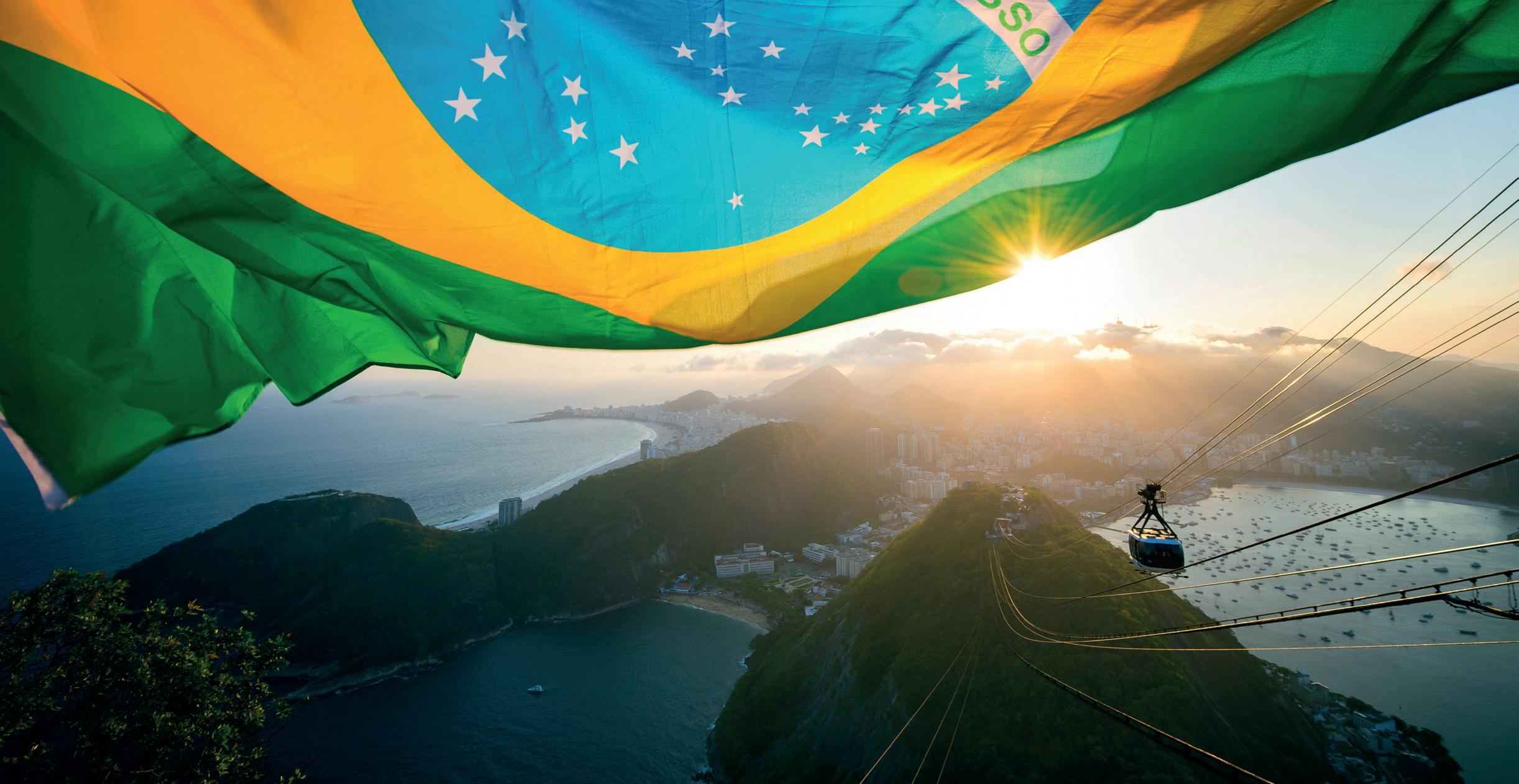
Edwin Monzon and John Giammarella of Lazarus Legal speak to Gaming America about Brazil’s
regulation,
upcoming online gaming
assessing the prospects and challenges involved.
Tell us a little about Lazarus Legal and any clients you may have advized that are looking at the Brazilian market?
Lazarus Legal has been advising clients in the gaming space for nearly 30 years and has helped launch worldwide industry giants in their quest to further their business achievements. Lazarus Legal has an international client base who seek to establish a foothold on numerous territories and jurisdictions. We help start-ups and mature businesses with all their regulatory, compliance and licensing needs. Brazil is a huge market, the largest in South America; naturally many clients are looking to start doing business in such a jurisdiction, hoping to reach a large client base.
Is the opening of the Brazilian regulated market the biggest opportunity in gaming for some time? How does it compare to the opening of individual US states or perhaps Canadian jurisdictions?
Brazil is a large market with a population of well over 200 million and a diverse multicultural society. That being said, the population does not have the same amount of disposable income that US and Canadian citizens do. But gaming is
prevalent all over Brazil, so the propensity to establish oneself in the market is high among industry leaders. Many see it as an opening to the South American market if future countries also create similar licensing regimes.
Have developments for Brazilian regulation to date actually been too slow?
Gaming legislation, in general, takes

EDWIN MONZON Managing Partner Lazarus Legal
many years before it is enacted, as governments and industry compliance norms change rapidly before a uniform set of regulations can be enacted. Furthermore, once enacted, those regulations and legislation are constantly modified so international operators can adapt to the new licensing jurisdiction. Brazil is no different in this regard.
Are there any particular laws/ regulations that concern you?
The Brazilian market will require license applicants to have deep pockets. Once an application is successfully accepted, it will require a substantive licensing fee that will allow your license to be valid for five years. To operate in Brazil, you must be incorporated in Brazil and under Brazilian law, with headquarters and management located within the country; only such entities are eligible for authorization to operate fixed-odds betting sportsbook and casino.
· Companies may be structured as either limited liability companies or corporations.
· They must provide proof of integrity and compliance with their tax obligations.
· Demonstration of the operator’s technical qualifications.
· Proof of the company’s economic and financial qualifications.
· Presentation of accounting documents.
· Timely payment of BRL 30m ($5.3m) for the license.
· Additional requests may be required.
· Income tax of 15% on net revenue, after deducting losses.
. A bond of BRL 5m.
So with the licensing fee and bond requirements, an applicant should be ready to have roughly $6.3m available, and that does not include any legal, marketing, compliance or accounting costs. Additionally, from a payments perspective, the Brazilian market has imposed that operators shall be prohibited from accepting payments in the forms of credit cards and cryptocurrencies; instead payments are to be facilitated between the operator and player via electronic transfer. The idea behind this requirement is to encourage locals to use only licensed sites and get the local Brazilian banks involved. In both instances, companies looking to start under the new legislation will have no choice but to adhere to the above, which is not an easy feat for many operators.
Generally, what do companies make of the demand to have an office and company head based in Brazil?
Gaming operators and companies are very used to certain obligations put forth by the new licensing jurisdiction, which are designed to help revitalize the local and national economic outlook. Aside from the tax revenue, gaming operations that have offices, employees and a local presence, despite being an international company, all help the economy of the jurisdiction. Brazil is no different in this regard; additionally, having a Brazilian company helps authorities track the movement of capital within the context of the gaming operations and therefore allow such authorities to ensure taxes are being paid.
Have you heard much about Fortune Tiger, a game by PGSoft, that has led to arrests and an amendment to the proposed Brazilian regulation?
The Fortune Tiger phenomenon in Brazil became popular as Brazilian digital influencers utilized platforms such as TikTok, YouTube and Telegram to flood the market with posts and videos about the game. The fact, however, is that the uncoordinated marketing effort led by influencers and promotion of affiliated links led many to believe, falsely, that a lifestyle of luxury can be achieved by playing a game that is no different than any slot game; which means results are generated randomly and no outcome is certain.
This form of predatory marketing goes against standard industry norms in tier-one gaming jurisdictions and cannot be practised in places that have a regulatory regime that protects its citizens. The arrests that followed the deceptive marketing campaign, undertaken by a slew of influencers, forced the hand of the Brazilian legislator; and the game highlighted the urgent need for stricter regulations regarding consumer protection and online gaming.






















Overall, how excited should the industry be about the regulated Brazilian market heading into 2025?
We do believe the industry should be excited about the prospects of the new licensing jurisdiction of Brazil. The industry is moving towards a highly regulated environment, because gaming is no longer looked upon in the negative way it was in the past. The arrival and expansion of online gaming has created a situation where national and local governments see a way to stimulate their respective economies, with the arrival of hundreds of international businesses seeking to enter their market. The industry should adapt to these ever-changing measures as they will continue to become more prevalent. Indeed, having experience in a large market like Brazil will only help operators once other Latin American countries establish their own regulatory regime.







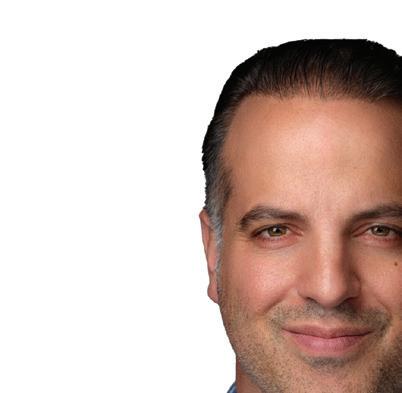








JOHN GIAMMARELLA Attorney Lazarus Legal
Bio: Monzon is the Managing Partner of Lazarus Legal and was called to the Quebec Bar in 2004. With a strong business focus and a reputation for providing comprehensive tailored solutions, Monzon continues to be a trusted advisor to his clients seeking expert legal counsel. Monzon’s dedication his clients, combined with his legal background, has allowed him to build relationships and foster trust among his clientele. Fluent in English, French and Spanish, Monzon has built a client network around the world.
Bio: Giammarella is a specialized gaming attorney, experienced in assisting online and land-based gaming entities meet their objectives regarding their platforms and betting products. He has provided services in assisting clients in registering Ontario’s regulated gaming and betting market and regularly drafts legal opinions on Canadian gaming and betting related issues.
Worldwide clients include Land-based and Online Casino Operators, Gaming Regulators, Policy Makers, Lotteries, Horse Racing Operators, First Nation/Native Casino Operators.
Keith Whyte, Executive Director of the National Council on Problem Gambling (NCPG), discusses the Council’s latest report on how regulations are currently being implemented by state regulators.
How do you develop the NCPG report on how sports betting regulators are meeting standards?
I believe this is the third report we’ve had Vixio compile for us and it’s really an important step, because shaping policy is crucial right now in this market. These standards were intended to guide not just regulators and legislators, but also operators and vendors. By commissioning this report, we want to show the entire ecosystem where things stand but, most importantly, how each state can get to higher and better responsible gambling standards. It’s not intended to be a negative, adversarial audit. It’s about working together to find solutions.
Was it a surprise for the NCPG to see that many states are failing to meet the majority of standards?
We actually weren’t surprised because we’ve come to understand that regulators are not very nimble and flexible, and that it takes a long time to get some of these changes through. We almost doubled the criteria in our last major revision, so we can’t exactly be shocked that this process is still ongoing.
When we created these responsible gambling standards, they weren’t solely intended for regulators and they include some provisions in here that can prove difficult to put into regulation. For example, we think it’s critical to make sure that, when you’re training employees, you’ve got someone who’s actually had a problem. I don’t know if that’s really something a regulator is going to put in their requirements for training gaming employees.
So, again, that’s a standard that is much more applicable to operators and vendors than it is to legislation or statute. The goal is to then encourage everybody, not just regulators, in the field to start pushing towards meeting those standards.
Is that why you believe these standards are still in the process of being met? The constant evolution of the industry?
Yes, but at the same time we don’t want to excuse regulators. This is a dynamic, fast-moving field. Everyone is learning a lot right now, whether it is us, the states or the operators. It’s no surprise that the bestpractice standards may well be moving more quickly than state regulation is.
Again, however, we are looking to provide that guide – if you want your state to be at the forefront, with this guide, that





































































































can be an easy pathway for you. That’s really the intent of this report.
Of course. What gaps in laws and regulations is the NCPG currently trying to fill?
Well, when you look at the report, there’s not a lot of consistency and that’s certainly a big challenge; because one of the most important things this report does is look at these regulations from a consumer perspective. Most states look at it top down from the state’s perspective: tax revenue or the fairness of the game, which are all important parts of regulation. But few, if any, are looking at it from the bottom up. One thing we know is that there are some operators that maintain a high standard across their offerings, regardless of the minimum standards in the jurisdiction. But others don’t.
Someone could be in multiple jurisdictions, but the level of responsible gambling is going to be radically different on some apps than the other. We believe the player should have a similar set of safeguards and protections across their entire gambling experience. That’s not exactly the story right now.
Do you think operators and state legislation are currently functioning with a consumer-first mindset or more so branching away from this concept?
KEITH WHYTE Executive Director NCPG
I would say most gambling regulations are to protect the state or to protect consumers from fraud and cheating. It’s not really designed to protect consumers from themselves, if you will, or to protect the public health of the state. So it’s not as much that


operators and states are branching away from putting consumers first, but more their attempt to find what works best for them while also meeting industry standards.
We have an advantage that online gambling is still relatively new and many of these states already have at least some consumer protections set in place. But when you look at that report, you’ll see that some states even have very, very minimalist responsible gambling standards. It’s rarely been a primary focus of state regulation to help towards the prevention of gambling problems. It’s certainly something we’re trying to push, but when you look at gambling regulation history in the US, going back decades, responsible gambling and consumer protection was often not the focus at all.
I would say it’s coming that way, but I think your point is right. There is movement among these regulatory agencies towards more of a modern approach to gaming, which includes responsible gambling. There’s still great variation state by state and some are clearly doing it better than others.
Looking at the states that have only met 10-24 of the 82 NCPGrecommended standards, Florida and Nevada both fall into this group. Is that a major concern?


Well, I do believe it shows once again that traditional regulation or even current regulation in some large states isn’t always focused on responsible gambling. It’s often some of the newer jurisdictions that are learning from the mistakes of the past and incorporating things like the online responsible gambling standards. We want to encourage a modernized and sustainable industry, but that decades-old legacy of





indifference towards problem gambling concerns can become a roadblock.
That’s certainly what you see in Nevada; they’ve never had much of a problem gambling concern. They’re going to have to really modernize and update their approach if they want to not just keep up with the industry, but make sure they’re better protecting their own players. Nevada has been pretty wide open for a long time and it’s going to take a while to change that.
Would you say modernization increases the need to keep consumers protected?
Absolutely. The advances of technology have brought more risk into the online gaming space and, while there are some protective features, we don’t believe these are given enough attention by both operators and regulators for consumers. Due to this evolution of new technology, it really places a huge responsibility on operators and vendors to try to balance those costs and benefits in an attempt to minimize harm.
This is a real opportunity for the industry to show that it’s capable of self-regulation. If there’s one area among all gambling regulation that the industry could see improvement, it’s self-regulating and building responsible gambling initiatives. We’d love to see every operator make the pledge that they’re going to uphold the standards of the highest US jurisdiction in which they operate, even if the other areas they service happen to have lower standards.




market. Many companies jumped in, but have unfortunately already failed because their intentions were to make a quick buck. Most of those companies had little or no interest in doing anything beyond just compliance-based responsible gambling. But it’s no surprise that they’re already out of business.
I definitely think it’s a symptom of this expansion and that will probably continue for another couple of years before things really start to stabilize. I think, and again regulators have time to catch up, some of these companies have seemingly finally found their footing; they’re ready now.
Regarding your Huddle interview with Gaming America in 2021, you mentioned the US was pretty far behind the UK in terms of responsible gambling initiatives. Is that still the case?
That’s a great question. I think there’s still probably that same distance, but it’s because both countries have been moving further. We’ve certainly made progress, no question, and that’s been great.
The progress has been uneven, though, because it’s still state by state, whereas the UK’s progress has been on a national level. They’ve moved the bar significantly. There may be some ways where it may be too much, too quickly even in terms of the aggressive pace for regulation there. Both countries have moved forward but I think the US will always be hobbled a little bit because of that state-by-state nature.
Understood. Is the race for market share a factor in how slow this process seems to be moving?
Of course, it’s a new emerging


































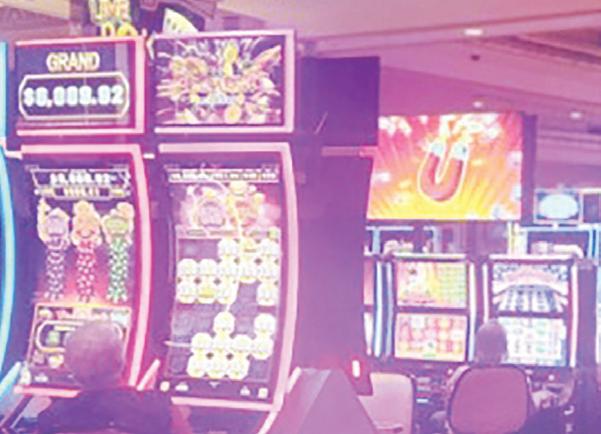







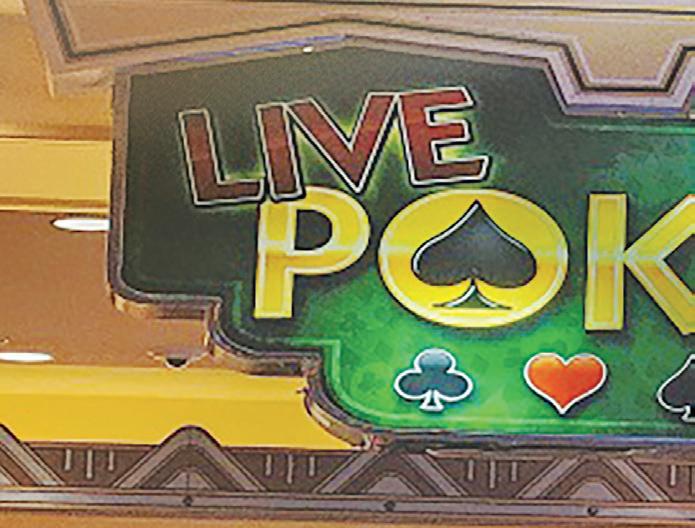


Gaming America’s Laura Mack takes her search for the ultimate casino experience further afield to include Indiana’s neighbors Hollywood Casino Aurora vs. Hollywood Casino Lawrenceburg.
For this casino match-up, we’ll be looking at two Midwest locations from the same operator. Indiana’s Hollywood Casino Lawrenceburg will face off against Illinois’ Hollywood Casino Aurora. Both are owned and operated by Penn Entertainment and each casino will have the chance to score in several categories.
In this contest, we’ll look at how each location stacks up according to cleanliness, dining, look and layout, variety of games and guest services.
As always, there can only be one winner. But before we find out which Hollywood Casino will emerge victorious, let’s get to know our contestants a little better.
Hollywood Casino Aurora is located along the Fox River in Northern Illinois. Penn Entertainment broke ground last year on a new site for this destination. Hollywood’s current location will continue to operate under its normal business hours until construction on the new casino is complete.


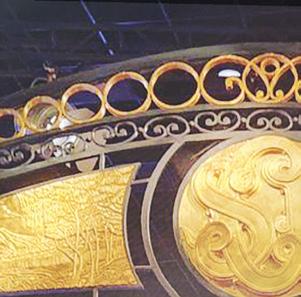
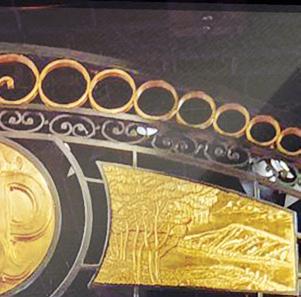
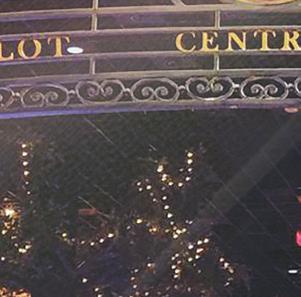
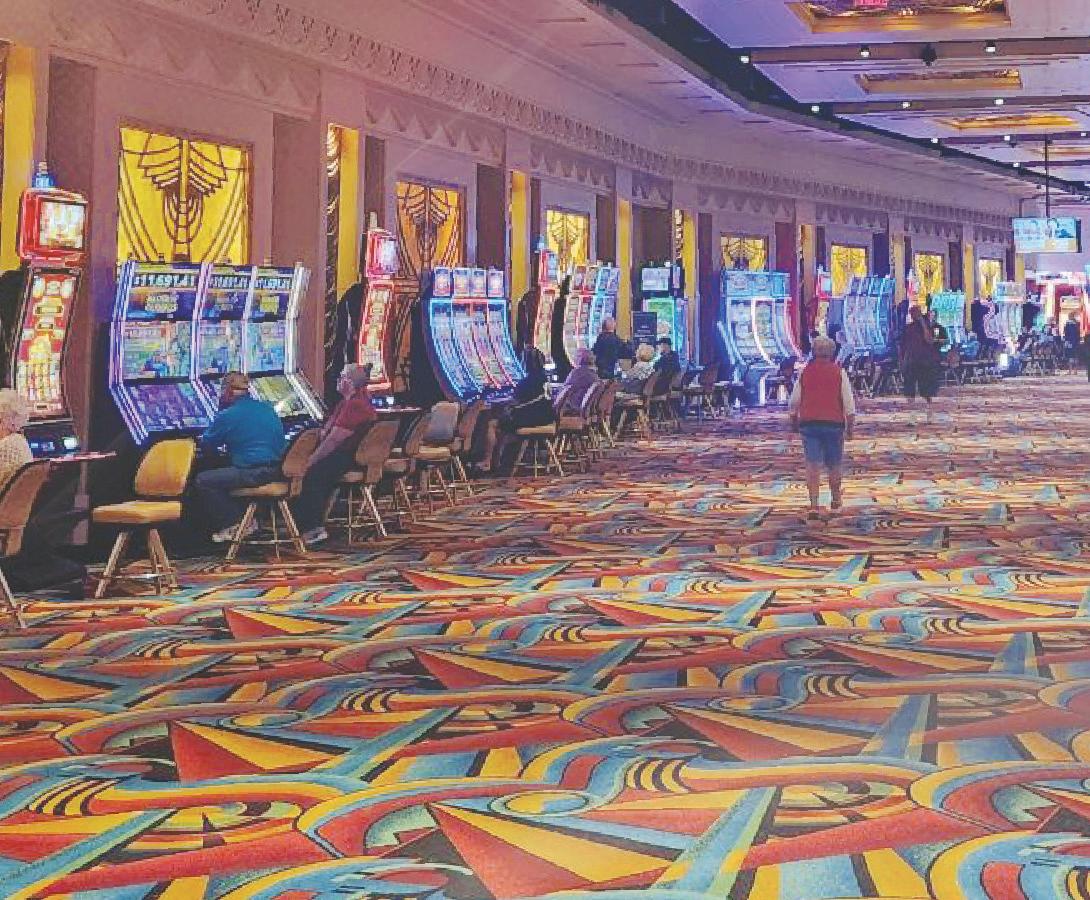
Penn said it expects the new building project will take roughly two years to finish, so we can expect the new casino to open during 2026. Hollywood Aurora Casino will be built on Aurora’s northeast side across from the Chicago Premium Outlets mall. The new facility will replace the previous riverboat casino, which first opened in 1993.
Hollywood Casino Lawrenceburg resides in Dearborn County, Indiana, not far from the Ohio River. This casino is home to more than 1,200 slot games, 70 tables games and a sportsbook.
Now, on with the contest!
I had no complaints for either casino in this category. Both spaces did a great job keeping the cigarette trash to a minimum. And the restrooms in both locations were very well kept.
Hollywood Casino Aurora earns the first category win in this matchup because of its size. The gaming floor looked great and was
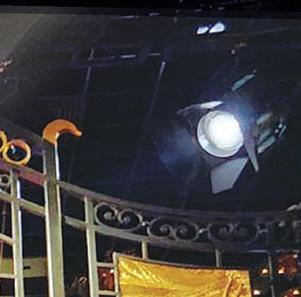



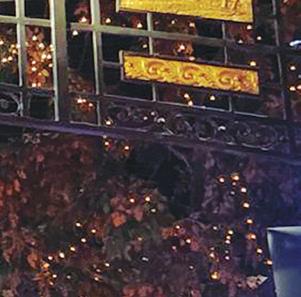









spotless, despite the constant patron traffic. I’ve owned different sizes of homes, and I have found that keeping smaller spaces clean presents a bigger challenge than it does for larger homes. Congratulations on taking the first win, Aurora!
When it came to food-and-beverage options, Hollywood Casino Aurora had a great list of choices. This Chicagoland casino proved size does not always matter. The variety of entertainment,


games, food and bar offerings available to its guests, despite the limited space, was impressive. Hollywood’s dining selections include Fairbanks Steakhouse, Penalty Box Sportsbook & Bar, Take Two Deli and Slice.
Not bad for a smaller casino.
As is the case with many other Indiana casinos, Hollywood Casino Lawrenceburg had complimentary drink stations positioned throughout the large gaming floor. This casino had a generous assortment of dining options as well, including The
“I ENJOYED THE AESTHETIC THAT HOLLYWOOD CASINO AURORA HAD TO OFFER. PLAYERS COULD COMFORTABLY GET FROM ONE GAME TO THE NEXT.”



































Eatery, Final Cut Steakhouse, Hollywood and Grind and Sportsbook Restaurant.
Two of these options, The Eatery and Sportsbook Restaurant offer online ordering for takeout, as well as dining on site. Both casinos scored well for this category. But for me, the abundance of complimentary drink stations at Lawrenceburg gives this casino the win.
The layout at Hollywood Casino Lawrenceburg was impressive because the casino floor was essentially one long hallway with slot machines on each side. The spacious walkway was at least 10 feet across, giving people plenty of room to move around the casino while other players were seated at their favorite games.
This feature was not something I was expecting to see in a casino; and I have to say this was a nice touch. I have seen many gaming floors with plenty of room to move, but setting up the floor in one long walkway was a brilliant move.
Hollywood Casino Lawrenceburg takes this category because of the wide-



















open space. I enjoyed the aesthetic that Hollywood Casino Aurora had to offer. Players could comfortably get from one game to the next without running into others. However, the limited square footage at this location was not enough for Aurora to win this category, although this casino’s visual appeal was on point.
So, the win for look and layout goes to Lawrenceburg.
Hollywood Casino Aurora packed in a large amount of entertainment in its compact space. Though the casino floor was a bit smaller than other casinos in the Chicagoland area, like Hard Rock Casino Northern Indiana, this gaming area contained a large variety of games for players of all stripes.
Hollywood’s gaming floor features 20 table games and more than 1,000 slot machines, including an “old-school slots” section. Fans of the classic, three-reel, one-line slots will have no shortage of games to choose from in this heartwarming corner of the casino.


















Among the titles available in the old school area were Triple Double Stars and the basic version of Double Diamond, along with several of its variations. Hollywood offers a variety of slot aficionado favorites, as well. Fans of the Buffalo series, Dragon Link or the Wicked Wheel slot games will have no trouble finding a seat at several versions of these titles.
Both high rollers and those who want to play with smaller bankrolls will feel right at home in Aurora. Meanwhile, poker players will not have any trouble finding their game of choice in this downtown North Aurora casino. The destination’s live poker room gives players a chance to win at Texas Hold’em and the Bad Beat Jackpot.
The game selection at Lawrenceburg was impressive, too. Hollywood Lawrenceburg had a great assortment of video, progressive and reel slot options for players who want to try for a massive jackpot. I loved the variety of games available and this casino also had some titles that are harder to find.
One of these is the original Top Dollar.








































Hollywood Casino Lawrenceburg has this game in a couple of variations, including a five-line version at 25-cent denomination.
I was also able to find a 25-cent denomination, five-line version of Double Diamond here. At this point, I have visited seven casinos in the Hoosier State. This was the first location where I found both these games outside of the high-limit room.
Hollywood Aurora gets five stars for its efforts to pack in as much entertainment as possible and for making the most of its space. However, Lawrenceburg had a lot more games and a larger variety, which means this casino wins the games category.
The staff at Aurora were warm and friendly, always a plus when visiting an entertainment venue for the first time. I also encountered nothing but friendly faces from staff when I applied for my rewards card at Lawrenceburg’s cashier station.
Aurora offered both enclosed garage parking and a ground-level parking lot adjacent to the casino’s entrance. This was convenient and I loved how easy



















this casino was to access despite being located downtown.
Parking was also convenient at Hollywood Casino Lawrenceburg. The casino had an attached parking garage with access to an elevator that takes guests up to the main gaming floor. And considering that it was raining the day I visited, the enclosed garage made the experience much more enjoyable.
Another convenient feature was the ATM and cash kiosks in various spots in the casino. These were not just for taking more money out. I was able to cash in my vouchers at one of these machines when I was finished playing.
Any casino that gives the option to cash in tickets without having to hunt for the cashier’s station and wait in line earns an A in my book. Top marks for Hollywood Casino Lawrenceburg for taking the guest services category!
I absolutely loved both casinos, which made determining a winner for this competition a little harder than with


















previous contenders. But for this casino matchup, Hollywood Casino Lawrenceburg gets the blue ribbon.
Great job, Lawrenceburg!
Penn Entertainment stands out in my book because of its awesome loyalty rewards program and the free-play options that are available even for new members.
Penn offers new members free play for signing up for the Penn Play rewards program with a valid email address. While I visited Lawrenceburg, I was able to get $30 in free slot play for signing up for a rewards card. Downloading the app gave me another $30, so I was able to get $60 in free slot play in one visit.
Another cool feature with the rewards card is that guests can use it for food and merchandise. Penn will double your credit amount when you use your free play to purchase food.
Overall, the Battle for Hollywood provided Gaming America with two top-tier experiences, so bravo to both. Hollywood Casino Lawrenceburg, though, deserves its win!













The 'Goddess of Slots' Lorraine Ziff spends time with Gaming America, to explain how acting and producing helped prepare her for a life of content creation in the gaming space.
Were there parts of your upbringing that inspired this career path?
It’s actually very funny, I grew up in the Bronx and in Yonkers, New York, so I was literally down the block from the Yonkers Racetrack. We never had casinos or anything like that, though, and gambling was never a big deal for me. We did know about the horse races and would get to walk around the racetrack at times due to friendships with some of the people who worked there. I always thought the thoroughbreds were magnificent. Casinos were not something I was exposed to. It’s ironic that I’ve had a number of different careers and now am in the gaming world.
How did the name Goddess of Slots come about? Is that something you came up with?
I was sitting with a couple of very dear friends, and we were kicking around different names. One of them had said, ‘you have to call yourself something’ but I just didn’t know. I do enjoy fancy outfits and the like, so he



said, ‘Well, I call you goddess because you’re always dressing up and you’re a girly-girl when it comes to that.’ He had also pointed out how goddess had a double connotation to mean dominating, so it worked as in I am “dominating” the slots in a way!
I noticed you had done work in acting, as well as directing and producing. How did that part of your career prepare you for working on social media?
When I was doing movies and television, I had to memorize lines, something I despise, and now I’ve found something where I can move away from that. This whole thing started because I was in between acting jobs, and I was in a casino and somebody happened to film me. I hit a jackpot, and we posted it to social media as a goof but then it went really viral. My friend said to me, ‘There’s a whole segment of people who like to watch that.’ Compared to acting though, this is a bit easier for me. In both
instances, I have to be “on” and I still have to bring the energy, but as an influencer, I’m able to ad-lib and be silly, while still being creative. I enjoy performing and I’m not nervous in front of a camera – it comes very naturally to me, so my acting training and the social media I’m doing now all ties in nicely.
You mentioned the “viral” moment you had with the jackpot; was that the first breakout moment of your career, per se?
It really was. And again it started as a joke, so the fact that it even happened was crazy. I got over a million views and was like, ‘This is nuts!’
Is your content suited for both experienced and new players in casinos?
I would say it’s suited for both. The reason for that is, a lot of times, I will describe the game and I will say, ‘Okay, this is what the denomination is, this is what we’re looking for.’
Like a Dragon Link, for example, if it’s Autumn Moon, I’ll say ‘we need three of the moons to land.’ I’ll explain the game as I go through, which I’ve had people write to me and say, ‘we never saw that game and so we appreciate that you’re doing that.’ I just did a roll out for the newest Rakin’ Bacon in Nevada and so, when I got there, the games were described to me. Then, as I played them and we were filming, I was able to describe them to the audience.
Are there similarities to how you film now versus for television and film? It’s interesting because, first of all, television and movies are two very, very different things in that, for television, they try not to make a lot of edits. They try not to take a lot of cuts, whereas, for movies, they’ll do a scene and then they’ll cut it, stop it and then they’ll have you take some from a different angle and continuously reshoot. Usually there are four or five cameras going at once, and a scene will be looked at, edited and possibly redone hundreds of times like you can’t even imagine. I was a producer as well as an actress on a movie called Six Gun Saviour, which was a supernatural western. Being both behind the scenes and in front, it just took forever.
It was crazy, whereas in social media, it’s really cool, because I don’t really have to edit my stuff, it’s mainly just one-and-done. What you see is what you get, because I’m not memorizing lines or anything. It’s here I am, and I’m either going to win or I’m going to lose – and the audience is going to see that. I was just at a photoshoot yesterday and I was posing, doing all these things, but then at one point, I misstepped and I almost broke my neck. I tripped, so an editor said, ‘Well, should we cut that? Do we want to put this behind-the-scenes stuff on social media? Should we cut that out?’ And I said no, because that’s me. Sometimes I can be clumsy and that’s okay. It’s not about conveying an image – it’s about taking the viewer on a fun journey with me."
Absolutely, and what different types of content have you found can be created within the gaming space? What I enjoy doing is almost a bit more than
just gambling. Sometimes, you’ll get gambling stuff, or you could get the casino itself, whether it be the food and restaurants or entertainment space.
It could also be a peek into my life for viewers. I enjoy classic cars so if I’m invited to a show or auction, my audience will come along for that as well. I’ve been to charity events and posted those. My content is really about what I enjoy doing and, in the gaming space, there’s so many avenues to choose from, including the slot reviews; which is what you’ll often see me film with casinos.
Do you typically work directly with casinos, or independently find games of interest and connect with properties from there?
Most of the time it’s independent, but I do have casinos that will fly me out. The Peppermill in Reno, Nevada just had me out recently for the unveiling of the newest Rakin’ Bacon games. In Atlantic City, a few months ago, they held a ribbon-cutting ceremony for the release and the fact that you could also gamble online, which I had the pleasure of being invited to.
It’s a combination of the two really. I’m going on a cruise next month with Virgin with the chance to be part of opening the newest high-limit slot room on the cruise. If I’m invited, I go out and play, if not, you can find me in a casino looking for games that seem fun for myself and the viewers.









How do you stay engaged with your fans?
I have meet and greets and I really try to respond to people, as well. When they write to me, and if they’re respectful, and I can roll with the punches, I’ll write back to them and try to form a nice connection. I try not to engage with trolls – the rude or disrespectful ones – on social media; I do have some great laughs over how clever some people think they are and the jokes they’ll make, it’s all in good fun really.
If casinos see your content and that of other creators, does it push them to be more open with their consumer bases?

































Some casinos didn’t allow people to film, which was really missing the boat. Now I believe many casinos have really jumped on the bandwagon and see influencers for what we are: which is advertising for you. We’re bringing bodies in the door because the consumer is often excited to meet us and share in the same experiences we are having in the casino. They want to play the games we show on our social media. There's an excitement and an energy there, and social media is the newest way to show the casino or the new game in a thrilling way. This is one more way to help get players in the door, so it’s really a win-win for all involved.Hard Rock has been very receptive to this new way of doing things for a while. The Peppermill in Reno has held big influencer events and public turnout has been incredible for them. Other casinos have been slower to recognize the value. MGM recently gave me permission to film and at G2E in Vegas, this year, I certainly took advantage of being allowed to do that.
How do you see your brand evolving from here?
LORRAINE ZIFF Influencer Goddess of Slots
I’m hoping it will get bigger and bigger. My end game would be to do a travel-type casino review show where I’m going from casino to casino, either by myself or with “my merry band of gamblers” playing games, checking the casinos and providing tips. Something similar to American Pickers on a network like Netflix, Hulu, Discovery, History or Travel Channels.



















Loserball Founder Jonathan Gruber joins Gaming America's Kirk Geller , discussing how his company was formed and its impact on fantasy sports.
What is your background with fantasy sports?
This is my first effort in fantasy. I’m a documentary filmmaker by trade and with a friend of mine, 20-plus years ago, we just thought fantasy was too serious and complicated. We said, ‘let’s pick a team to lose and whoever loses the most, wins.’ It was fun to root against teams and the banter was even better; we would be speaking in opposites. I said, ‘I think there’s something in fantasy here that we could do.’ So I started tooling around with some algorithms and making it a little bit more in-depth than just winning and losing, introducing in-game stats that would correspond to playing poorly basically.
Then, Covid-19 came, so only a couple of years ago did I pick it up again. I went to the Fantasy Sports and Gaming Association (FSGA) conference and
tried out the idea with some folks. They had said it was interesting and I actually won the elevator pitch competition they hold every year, mine being in Cleveland. That gave me a little notoriety in the space and validated my idea.
Is there any connection from your experience as a director and producer that you’ve brought into Loserball?
That's a great question. When you’re trying to get to what’s really needed, short, medium and long-term, it’s the same thing to get a rough cut for a film. We don’t need to do these graphics now; we just need to get our story in place. So being able to prioritize that way for my career making films was definitely helpful and, in terms of how we’ve done it, how we are currently
doing it and how it will be done in the future in regards to Loserball.
Understood. How does one win at Loserball... what are players aiming for?
Players look at the handicaps of the teams and pick three teams to play, and then you root for it all to go wrong on the field. We’ve got 16 different categories from incomplete passes on offense and missed field goals, to penalties and sacks on defense. It’s all weighted based on how often it happens during a game throughout the season. For people who really want to “nerd out” on the stats, we offer all kinds of research, team previews and ways of looking at each category. Years of statistical data and research went into creating our handicaps; we think our players appreciate the effort we put into
keeping them informed about each team around the league.
We’re trying to appeal to everyone, certainly for people who play, because psychologically it’s a little kinder, gentler than the frustrations that come from playing normal fantasy football.
What led to the strategic partnership with Bettor Sports Network?
I met Matt Deutsch at the FSGA conference and Al Williams a little bit later on; but we just started talking and they really loved the idea. We love working with them, and they’re doing a great job of finding ways to engage people and promote Loserball to their audience. We’ve also partnered with Scott Fish of the “Fish Bowl” to create our own “Flounder Bowl” for the NFL season, where users can earn prizes just as they can throughout the entire season on Loserball. We wanted to find the best ways to promote our brand and get the Loserball name out to fantasy players everywhere, so the partnership with Matt and Al helped us do so in a lot of ways.
How does the partnership with Fantasy Alarm help Loserball as well?
We’re integrating with Fantasy Alarm on all their platforms, including the website, and helping to promote Loserball across each piece of content. They are helping us improve our social media efforts and we’re really lucky to have them as a partner. Whether it be on the website or even on the radio now, the collaborations we’ve been able to create are about helping grow what the company can be, and what we can offer to fans who grow an interest in learning about this type of fantasy.
You had mentioned a DFS offering; can users expect that soon on Loserball?
Yes, it will be a multiplayer style, the way DFS is played currently. Users are competing against other people with an entry fee. Players will have the option of doing halfseasons or just a number of weeks, so they










































































































































JONATHAN GRUBER Founder Loserball
will have the ability to create a really robust offering for friends and other participants. Everything is scored negatively, and we’ve gone back through years of history to track and analyze data that lead to creating our handicap. The Baltimore Ravens and San Francisco 49ers are terrible handicap teams for Loserball, for example, because their handicaps are constantly positive. With the DFS style we will be offering, players want to continuously have a negative handicap to have the highest chance of winning. Whether that is through safeties given up, interceptions, incompletions or fumbles, the idea will remain that players are rooting against the teams they’ve chosen that week.
Did any inspiration for Loserball stem from the treatment some players receive from fantasy users throughout the season?
I hadn’t thought about that. I have also heard that players are being – I don’t know if targeted is the right word but –called out for bad fantasy performances; and it’s ridiculous. Loserball is less intense; you’re rooting for a team to fail so whatever happens, happens. If a player does well, we’re still calling them out, but hopefully our users are doing it with a smile. It does frustrate me to hear about
how players are being treated by fans because of the difficulty that comes with playing the game. There is never a reason to attack these people just because they don’t perform well on a given week. While I don’t think this was my reasoning for creating Loserball, I’m hopeful that giving fans this alternative method of fantasy could help create an “emotional hedge” of sorts from their normal fantasy team.
We’re also just calling out the ridiculousness of it. It’s a hard game and, even when everything goes right, it’s difficult to be completely happy for players that are involved in typical fantasy leagues. I wouldn’t say protecting players was a motivation for Loserball personally; I think it’s safe to say we just wanted to offer a unique way of having fun when it comes to fantasy football.
Finally, what is the future for Loserball? What are the next steps you would like to take with the company?
DFS for sure. Next year, we want to expand this concept into other sports such as basketball, baseball, hockey, global soccer and even cricket. My ultimate goal is to get into India, where 200 million fantasy cricket players are. So, once I am able to figure out how cricket is played and learn myself, we can launch a Loserball version of it! Those are sort of our short, medium and long-term goals. Global soccer, for sure, the Premier League, Bundesliga, all these places, it’s figuring out what makes sense and how we can program our offering into those fans’ experiences.
We really want to make sure we can have that type of engagement with fans throughout the game. There’s no shortage, however, of how we can offer Loserball into those international sporting leagues once we figure out the best way. Ultimately, we want to continue growing our user base, expand into the DFS market and other sports around the world. The larger Loserball can grow and the more it can offer, the more realistic our opportunities for where we can take it become.

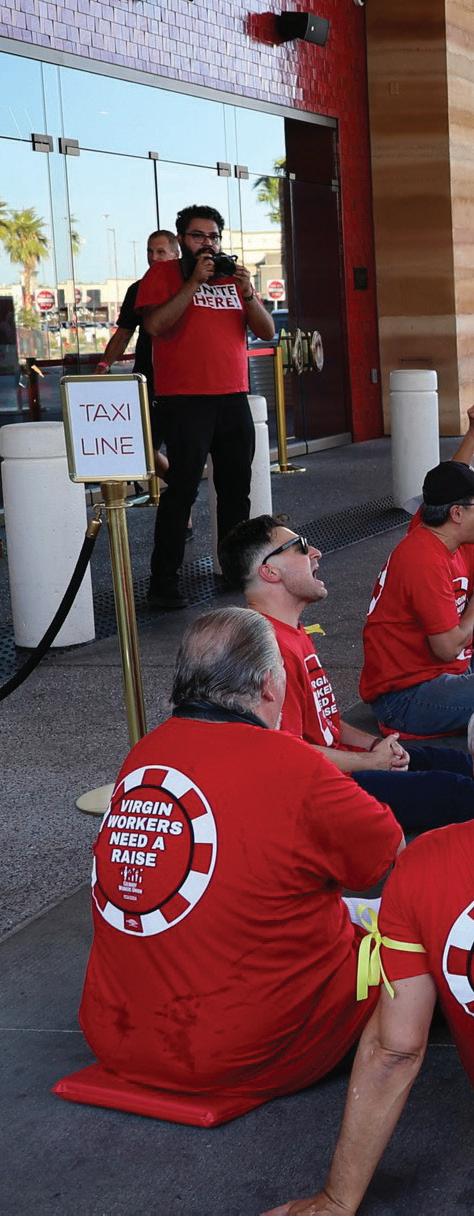


Culinary Union 226 Secretary-Treasurer Ted Pappageorge details ongoing contract disputes with Virgin Hotels in Las Vegas, as well as the tentative agreement reached with the Venetian. Views expressed are that of the Union, not Gaming America .
Thanks for joining us, Ted. To start off with, could you explain the ongoing disputes with Virgin Hotels in Las Vegas?
Well, we had a round of contract negotiations with the majority of companies that are Strip properties, including two different strike deadlines, since the contracts expired on June 1 2023 with three of the larger employers: MGM, Caesars and Wynn Resorts. We had a strike deadline with them set for November 11 2024 but were able to thankfully reach settlements with each. Then, there are the independent operators that are considered Strip properties such as Virgin Hotels. Virgin are unique because they had some financial issues, but they’ve got a great management team. They’re turning things around, and they’re going to be just fine financially.
We, and the workers on the negotiating committee, felt it was best to give them more
time as they did a financial restructuring in June. We conducted a two-day strike in May to try to shake things loose, but Virgin took a different track from every other employer in Las Vegas we had dealt with. They proposed zero wage increases for a five-year contract, with a reopen to discuss possible wage increases in only the fourth and fifth year. They then publicly put out a final offer to the press which included no wage increases at all in the first three years, and little chance of renegotiation in the short term. We tried to negotiate again in July but to no avail and, unfortunately, it does seem like we are headed for a strike at Virgin.
The workers are 100% united and we’ve attempted to see if there’s some sort of leeway or significant concessions on the table to try and get them moving. Now we’re in the process of making sure its customers know this property is an outlier from the rest of the industry. We’re doing outreach to
customers of Virgin since they’re a big partner with Formula One. And we are going to make sure the Formula One patrons understand that this is the only property left in Las Vegas in the Strip area we’re having this kind of dispute with!
which resulted in a number of workers being arrested, authorized by the Culinary Union?
Yes, we wanted to send a point to the customers of Virgin and also the Virgin management that our workers are serious. We held a two-day strike in May, where virtually 99.9% of the workers participated. At this point, we’re 15-plus months after the expiration date, and I think the workers have been extremely patient with this company that is going to be doing well financially. They brought somewhere north of $750m to purchase and renovate the Virgin Hotel –
and we believe that’s a great thing. These big Wall Street banks, they bring money and run over workers everywhere else. But in Vegas, it’s different. We’re 100% Union on the Strip and if you bring money to renovate or buy the place, you have to bring money for the workers, too. Virgin is trying to get out of that and have the workers carry the burden. What they’re proposing is just unacceptable.
How do you think these strikes help put pressure on the properties where you’re yet to reach agreements?
It’s a way of notifying the customers that there are 45 other venues in Las Vegas you can take your money to. There’s a significant amount of customer base that comes to Las Vegas that is supportive of the workers in Las Vegas. We don’t have a hard time convincing folks to take their money elsewhere. This [Virgin's proposal] is just so far below anything any other company has even proposed. It’s the worst we’ve seen in 30 years here in Las Vegas. We believe we’ve got some outside financial institutions that are under the impression they’re going to take advantage of workers in Las Vegas and that’s not going to happen.
On a more positive note, how has the situation with Venetian played out since you reached a tentative contract agreement?
Well that’s extremely exciting for the workers at the Venetian, but also for us. There was a previous owner who had been more anti-Union thinking, but he passed away and the family chose to sell. Luckily, the new company made a decision to sign what we call a ‘card check neutrality agreement.’
The labor laws here in Las Vegas really favor companies since they allow them to essentially break the law by intimidating, firing, harassing and bribing workers with very little repercussions. That’s not how we built our Union in this city. We fight with these companies in every possible way until we get a card check neutrality agreement. If an arbitrator rules that the majority of properties have done it, others begin to recognize Unions and bargains as well.
That’s what happened at the Venetian. The company did the right thing and they decided to be in partnership with their workers. For the first time in 25 years, those workers have had the opportunity to have their own voice with a Union contract set in place. It’s been tremendous; we have a great partner in the Venetian and the ownership team that’s there right now. We are extremely proud of the contract.
What does it mean to the Union to finally end that 25-year streak of not having an agreement with Venetian? It was quite emotional, we’ve been battling with Venetian ownership for decades now, so it’s a huge victory for workers in Las Vegas overall. We only have one company left, Station Casinos, which has fired, harassed and threatened workers; they’ve broken every law in the book. We’re in the middle of the largest labor law case, we think, in the history of the US. We have 40 trial days scheduled just for the rest of this year and some into next year.
We’re going to keep pressing after lawbreakers, historic lawbreakers. At the same time, they’re going to be feeling awfully lonely because they’re really the last ones left that contain anti-Union ideology here in Las Vegas. So we’re very proud of the Venetian and we’re going to figure out the Virgin Hotel
dispute one way or another. Those workers are going to go on strike, and we will fight them until we get a good, standard contract that they deserve. In regards to Station Casinos, we’re going to take them on for as long as it takes; we’re never going to walk away from those workers. They deserve what everybody else has in Las Vegas.
Would you mind explaining the ongoing dispute at the Evolution office in the country of Georgia right now? Will the Union assist?
What we believe is we have the ability to support workers in any situation like that. We’re certainly far away, but it’s a global phenomenon right now. We think that, here in the US, we have the ability to affect companies which don’t provide good working conditions. I don’t think we’ve really exerted our leverage as much as we possibly could in the past so, when we were asked to help, the Union saw it as a great opportunity. We’re prepared to continue to assist those workers until conditions improve in Georgia.
How would the Union go about supporting workers here in the US compared to internationally, such as the situation in Georgia?
























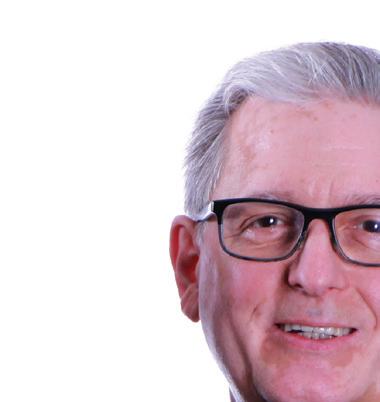















TED PAPPAGEORGE Secretary-Treasurer Culinary Union 226
What we’ve done in the past is have workers travel from Brazil, Mexico, Cambodia, Europe, etc. all the way to the US. We send workers there for solidarity actions and to ensure the people in those areas know they’re not alone. It’s really the only way to beat these giant corporations. The thing is, a lot of these corporations are global now, or they have global connections. That gives us the ability to broadcast injustices in a big way which didn’t exist as much before.
Take the companies we mentioned before – MGM, Caesars, Wynn Resorts –they’re all over the world and continuously attempting to grow. If they want to be good partners, we’re going to back them up. In the event they aren’t good partners, then there is this global network we are now participating in, which has been able to put pressure on these companies, and we’re going to continue to utilize that.
Gaming America asks industry experts from Everi, Pavilion Payments, PayNearMe, CPI and Sightline about how cashless payments can grow, and possible pushback from veteran players.






















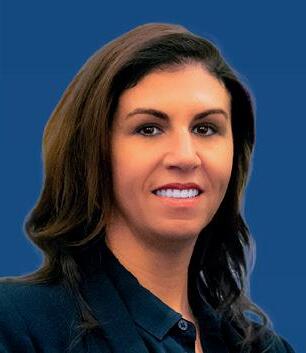
VICTOR NEWSOM, SVP of Product Management and Payments Solutions, Everi
Victor Newsom is a Fintech and gaming veteran who has held leadership positions for a wide range of companies engaged in acquiringm issuing and processing US and International operations and card-based, virtual, cryptocurrency and mobile payments, as well as DeFi. Victor has consulted with US law enforcement, worked on payments legislation, advised on central bank policy in emerging markets and Fintech-related intellectual property.
TIM MARCOLINA, Product Development Manager, Pavilion Payments
Tim Marcolina is a Product Development Manager at Pavilion Payments with 19 years of experience in the gaming industry. His expertise focuses on casino floor and cage operations, where he specializes in optimizing payment solutions and streamlining processes for improved efficiency.
LEIGHTON WEBB, VP and GM of iGaming and Sports Betting, PayNearMe
Leighton Webb is the VP and GM of iGaming and Sports Betting at PayNearMe, where he is responsible for establishing PayNearMe for iGaming as the preeminent payments platform in the gaming industry. Leighton brings over 20 years of experience in the gaming industry, launching and managing gaming platforms and services on every major consumer platform.
MOLLY DUGAN, Director of Strategic Marketing, CPI
Molly Dugan is an accomplished professional with over 15 years of experience in strategic marketing and communications. Molly spearheads initiatives aimed at driving organic growth within the gaming market, collaborating closely with cross-functional teams to deliver innovative products and services. Her role involves extensive market analysis, identifying customer needs and staying abreast of industry trends to inform CPI’s long-term growth strategy.
TAMARA TENENBAUM, SVP and Key Account Executive, Sightline
Tamara Tenenbaum is Senior Vice President and Key Account Executive at Sightline Payments, leading growth initiatives and partnerships with over a decade of experience in gaming and payments.

























Tim Marcolina: Pavilion Payments is uniquely positioned in the gaming space as it works with both businesses (B2B) and patrons (B2C) in both the physical and digital mediums. This positioning at the center has given us incredible insights and allowed us to create products in the evolving landscapes of gaming with younger demographics. Part of this evolution is operators and businesses wanting to reach these younger demographics. Pavilion has enabled this by providing cashless solutions that align holistically across the casino vertical. Our VIP Mobility platform offers a seamless, frictionless cashless gaming experience, integrating within the existing casino and resort hardware.



Victor Newsom: We continue to look to the future and how to best serve the gaming industry in a world of converging expectations across channels, products and service categories. In addition to a long-running investment in core banking technology and payment skills, our acquisitions of compliance companies, loyalty companies and Venuetize are all geared at providing best of breed, integrated and seamless experiences to patrons and operator team members alike. Specifically in the payments world – embedded payments, composable payments, payments orchestration and transactional identity are all key descriptors of our products and services needed to meet the growing demands of patrons when, where and how they want them.









Leighton Webb: Our company is evolving to meet the needs of resorts, casinos and other businesses by focusing on improving operating margins, with payments being a critical component of that strategy. The days of acquiring new players at any cost are behind us. Now, operators who find a sustainable path to profitability will stand out in this competitive market. By optimizing payment processes, reducing acquisition costs and maximizing player lifetime value, operators can significantly improve their margins. Additionally, scalability is key, especially during this period of rapid growth in online gaming. In 2024 and beyond, operators will need to evaluate platforms that enable them to quickly enter new markets, offering a seamless experience across all major payment methods. Our platform is designed to support that growth, helping operators get to market faster while maintaining profitability.





Molly Dugan: For years, CPI has been a trusted payment partner to not only gaming operators, but customers in the retail, vending, transportation and financial services industries as well. In addition to managing physical currency, we provide digital payment solutions for these industries and have developed our solution roadmaps based on the unique needs of each of these markets. As the gaming industry evolves to accept alternative forms of payments beyond cash, coin and TITO, we are leveraging the insights, partnerships and technologies we’ve gained over the years to create solutions that are designed specifically for the needs of gaming operators. Because we have extensive experience in other markets, we are well positioned to address the unique challenges and operating conditions of resort environments, which include not only gaming applications, but retail, parking, hospitality and other considerations as well.









Tamara Tenenbaum: The technologies surrounding digital payments are constantly evolving, as are individual operators’ needs and patron preferences. That’s why Sightline Payments is continuously adapting and developing innovative payment solutions that focus on enhancing the patron experience, as well as reducing the burden on gaming operators. We improve and innovate our payment solutions, making them more userfriendly, versatile, and integrated with loyalty programs and responsible gaming features. We continuously invest in new technology and building strong partnerships to help reduce transaction fees, increase acceptance rates, and generate additional revenue for our gaming clients. This approach allows us to support the evolving landscape of the gaming and resort industry, ensuring our solutions meet the dynamic expectations of both operators and patrons.






















Tim Marcolina: The different behaviors within different demographics are very real. Some players still prefer physical cash, and Pavilion Payments accommodates these preferences through our VIP Financial Center self-service kiosks and cage applications which provide quick access to cash on the casino floor. With other demographics, however, wallet and digital-based transactions are becoming the norm outside of the gaming industry. Pavilion’s VIP Mobility product helps bridge the gap by leveraging the casino’s existing Ticket-In, Ticket-Out (TITO) system – a familiar feature for many players – ensuring a smooth transition to cashless gaming. Even with the older demographics we have seen the pushback shrinking over the last few years.










Molly Dugan: Of course. But we believe that much of that apprehension stems from the perception that cashless payments are intended to replace TITO or cash, rather than complement it. When talking to operators, we often hear, ‘my players prefer cash.’ And for certain individuals, that’s true. But to assume it’s true for the player populace at large would ignore the payment trend we see in every other industry, where consumers demonstrate again and again a preference for digital payments. With emerging technology, it’s key to recognize that the goal isn’t immediate mass adoption. Instead, it’s about targeted adoption – identifying the players who will benefit most from the technology, helping them get started and driving adoption from there. With the right player adoption, a tangible ROI can be achieved relatively early, and other players will eventually follow.








Victor Newsom: Patrons are people and people hate being pushed down a single path as a rule. Our efforts to provide a wider range of products to meet the needs and expectations of various customer segments means there is a better overall performance for operators looking for the many benefits of a digitally integrated operation. This is not really a new concept, but the execution takes a great deal of vision and support from the executive teams of the operator, Everi, and any other partners in delivering the patron experience.






Leighton Webb: For a variety of reasons, some players will always prefer to continue to use cash and eliminating it entirely would alienate that segment of the player base. Cash is a tangible, reliable form of payment that will always have a place in the gaming industry. PayNearMe has historically been bringing cash payments into the digital space by allowing deposits to be made in cash for iGaming and online sports betting platforms. That crossover between brick-and-mortar and digital payments – the omnichannel payment experience – is really what operators need to be looking ahead at to meet the needs of all players. Bridging the gap to allow everyone to pay and withdraw the way they prefer is how to capitalize on the growing market of players.








Tamara Tenenbaum: To say ‘veteran’ makes acceptance of digital payments vs. traditional payments strictly a matter of age, when it is more complex than that. For a variety of reasons, some patrons prefer physical cash and, for some players, the feel of cash and traditional gameplay are part of the casino experience. Our goal is not to eliminate cash entirely, but to provide additional options that enhance the gaming experience by offering safer and more seamless alternatives. Sightline’s digital payment solutions are designed to coexist with traditional payment methods, giving patrons the flexibility to choose how they want to transact. We aim to empower patrons with options that cater to their comfort levels, while also introducing them to the convenience of digital payments.



What is the future of cashless payments and how much further can it go beyond what is currently being integrated



Tim Marcolina: The future of cashless payments in the casino industry is promising. Most cashless payment systems integrated today require app downloads and sign-up processes. Pavilion Payments’ VIP Mobility platform stands out by offering a walletless solution that integrates smoothly with existing wallets and applications. Our new wallet-less solution, completed in partnership with Apple, allows patrons to fund an EGM via existing smartphone wallets, without the need to download an app. This approach supports all player demographics; those who prefer cash, those who prefer wallets and those seeking wallet-less experiences. As the only vertically integrated cashless solution on the market, we can manage the entire payment ecosystem without relying on third-party providers. We are focused on delivering a superior experience for both casinos and players.




Molly Dugan: The payments landscape is evolving with technologies like AI, crypto and biometrics, all of which will certainly be adopted eventually into the casino payment environment, but we remain focused on simply helping operators take the first step toward cashless payment –currently in the form of a mobile wallet. Our customers are focused on maximizing slot floor revenue and creating practical payment modernization roadmaps now. So, to address the immediate future, our goal is to make cashless payments easier for all stakeholders – casinos, players and regulators. As cashless payments become easier, adoption and revenue will increase, opening more opportunities for the next phase, which may include at-machine debit payments, and then more disruptive technologies like crypto and biometric payments.



Victor Newsom: While we have seen double-digit conversion of cash on the gaming floor already – as we zoom out – the reality is that we are just beginning to scratch the surface. It is obvious that we will continue to push digital integration and enablement beyond the gaming floor and into retail, hospitality, entertainment, sports and even transit over time. For now, we remain laser focused on these foundational, transformative product rollouts. It is worth mentioning that one aspect of this effort that is already paying dividends and is a HUGE benefit to operators is the growing amount of data, visibility and insight they gain about the patrons and their own operations. This will continue to show compounding benefits across all aspects of their operations.


Leighton Webb: There will always be more work to be done as the market expands and as new tender types become available in the future, but our goal at PayNearMe is to combine all of the most in-demand payment methods (both digital and cash) into a single, optimized cashier for operators and players alike. Another aspect to keep in mind is the seamless movement of money between brick-and-mortar casino accounts and their digital counterparts. The vast majority of payments in brick-and-mortar locations are made in cash today, while the inverse is true for the digital space. This discrepancy in payment tendencies is an aspect unique to the gaming industry, and the operators who perfect the flow of funds between these two worlds will be the ones who successfully capitalize on player brand loyalty.



Tamara Tenenbaum: The future of cashless payments is about creating a truly seamless, integrated solution that elevates the entire resort and casino experience. We envision a system where digital payment technology simplifies transactions and connects every touchpoint across the property, from gaming and dining to shopping and hotel services. This integrated approach is aimed at giving patrons a unified, hassle-free experience, allowing them to move effortlessly between different activities while using a single payment instrument. The future goes beyond just convenience. Sightline is continuously enhancing our cashless platforms to offer advanced safety features, such as biometric authentication and fraud detection, to protect both patrons and operators. Additionally, we’re working with expert partners to reduce friction, improve the speed and reliability of payments and implement technologies that make the entire process more transparent.



Is there still a need for physical payment on the casino floor and, if so, will cash ever be fully pushed out


























Tim Marcolina: The need for physical payment on the casino floor is driven by player behavior and why Pavilion Payments continues to provide such full-service options, including our VIP Financial Center self-service kiosks and cage solutions. This trend is shifting toward cashless solutions, driven by the convenience they offer, but cash represents tangibility to many patrons, which we believe will continue to be important for the foreseeable future. While cash may not disappear entirely, the demand for cashless options continues to grow, and casinos are preparing for this shift. Our suite of solutions ensures operators can provide the experience their patron’s desire.






Victor Newsom: Never say never but the all-or-nothing approach rarely works well in the near term. I would certainly expect cash usage – like physical checks, coupons, airplane tickets, physical payment cards –to all have reduced usage as Everi’s Digital Neighborhood model expands through the industry but I doubt it will go away anytime soon. Delivering the experience the guests want is the key. Patrons who successfully use the banking as a service feature in our wallet, and are very happy using it, will still go to an ATM for cash or get a TITO ticket for gaming even though neither is required. By delivering the choice – we see greater use and satisfaction (aka loyalty). The secret is making sure that the choice is constructive vs dilutive to the strategy. So, for now, we continue to execute our strategy alongside in partnership with our customers.





Leighton Webb: Despite the growth of cashless gaming, cash continues to play a pivotal role in the gaming industry. In fact, according to research, 46% of bettors said it’s important to have access to cash as a funding method when depositing funds for online gambling/sports betting. So I believe cash isn’t going anywhere. It’s a tangible, reliable form of payment that will always have a place on the casino floor.





Molly Dugan: Absolutely, there is still a need for physical payments on the casino floor. We don’t believe in eliminating or replacing any single form of payment. In the various markets we operate in, we’ve observed that consumers have different preferences. Our goal is to meet customers where they are. Whether a customer wants to play with cash, TITO, or a mobile wallet, we aim to accept all forms of payment. By offering multiple payment options, we ensure a seamless and inclusive experience for all players, catering to their individual preferences and needs.










Tamara Tenenbaum: As long as there are patrons who prefer to pay with cash, there will be a need for physical payment options on the casino floor. While digital payment technology is growing in popularity and offering new benefits, we recognize that many patrons still prefer using cash. Sightline’s approach is not to eliminate cash but to provide additional options that enhance the gaming experience, allowing patrons to choose the payment method that best suits their comfort and needs. As digital payment solutions continue to evolve, we anticipate a gradual shift where cash becomes more of a backup or secondary option. The focus is on expanding choices for patrons, making cashless an attractive alternative.


After another memorable Global Gaming Awards Americas ceremony in Las Vegas, Gaming America reviews the four products that won specific product-related categories, featuring Aristocrat (twice), IGT and Light & Wonder.
The 2024 Slot of the Year at the Global Gaming Awards Americas is NFL Super Bowl Jackpots™ by Aristocrat Gaming. Presented the award at the 2024 Global Gaming Expo, Aristocrat is proud to introduce this revolutionary cabinet.
Exclusively available on the groundbreaking King Max™ cabinet, NFL Super Bowl Jackpots launched a new era in gaming. It was the most anticipated game of the year and was the first of several NFLthemed games in Aristocrat’s NFL lineup.
NFL Super Bowl Jackpots created incredible new potential for the industry because, for the first time, in a single cabinet, the player could choose to play as one of 32 teams. This milestone feat required Aristocrat to invent new technologies that forever changed what is possible in a slot game.
The game has a 63” high-definition display, integrated LED edge lighting and

feature-rich gameplay, including game footage. Players have the chance to win a $1m progressive jackpot, where permitted, and experience additional rich gameplay features, including six licensed fan-favorite stadium anthems during key moments in the game.
Features include a Two-Minute Drill where players look to collect consecutive Cash-on-Reel symbols before the clock runs out! The Match-Three Jackpot Pick searches for three matching symbols to award progressive jackpots and multipliers.
Clutch Kick offers users the chance to select one of three footballs that could win credit prizes and additional field goal kicks if the attempt is successful.
A new version of NFL Super Bowl Jackpots includes a multidenom option, allowing players to choose their denomination and their team for the ultimate in playerdriven fun and excitement.

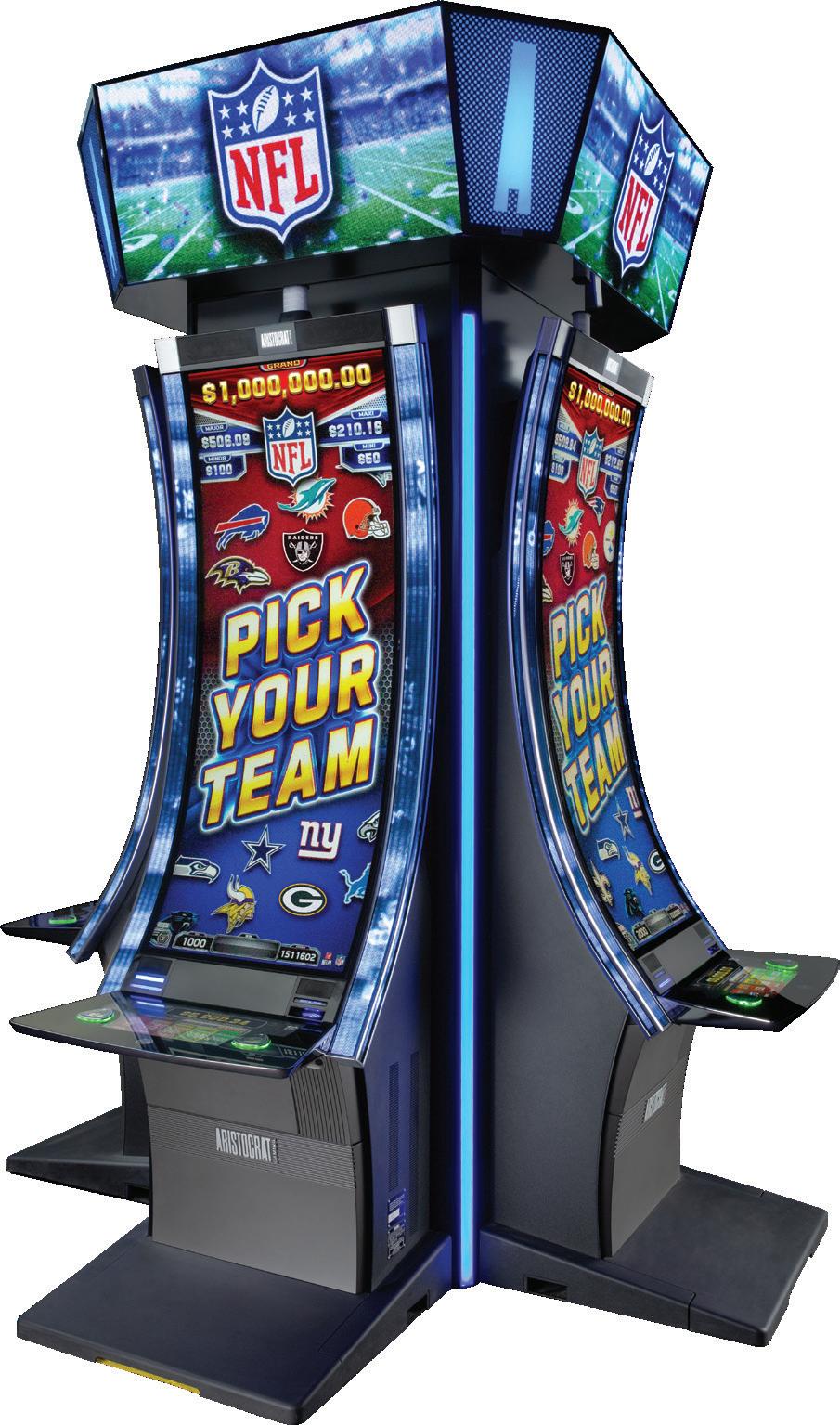
The MarsX Flex® and the Cyclone Sign Package from Aristocrat Gaming was named the Land-based Product of the Year in the Global Gaming Awards Americas 2024.
The innovative MarsX Flex is an exciting advancement in both placement configuration and premium quality content. This large box top cabinet with an expansive 55” top monitor towers over the casino floor visible for all to see and can be placed anywhere.
Building and expanding upon a successful
platform, MarsX Flex is supported by a robust game roadmap to make sure that there is always something great for players to enjoy from Aristocrat Gaming.
MarsX Flex attracts players and creates an involving environment for play through its game complimentary halo edge lighting, pod banking formations and signage.
The Cyclone Sign Package adds to the excitement. The all-new four-pod LED sign package completely surrounds each game in the pod – top and sides, expanding the branding and providing a seamless player experience.
This groundbreaking advancement in
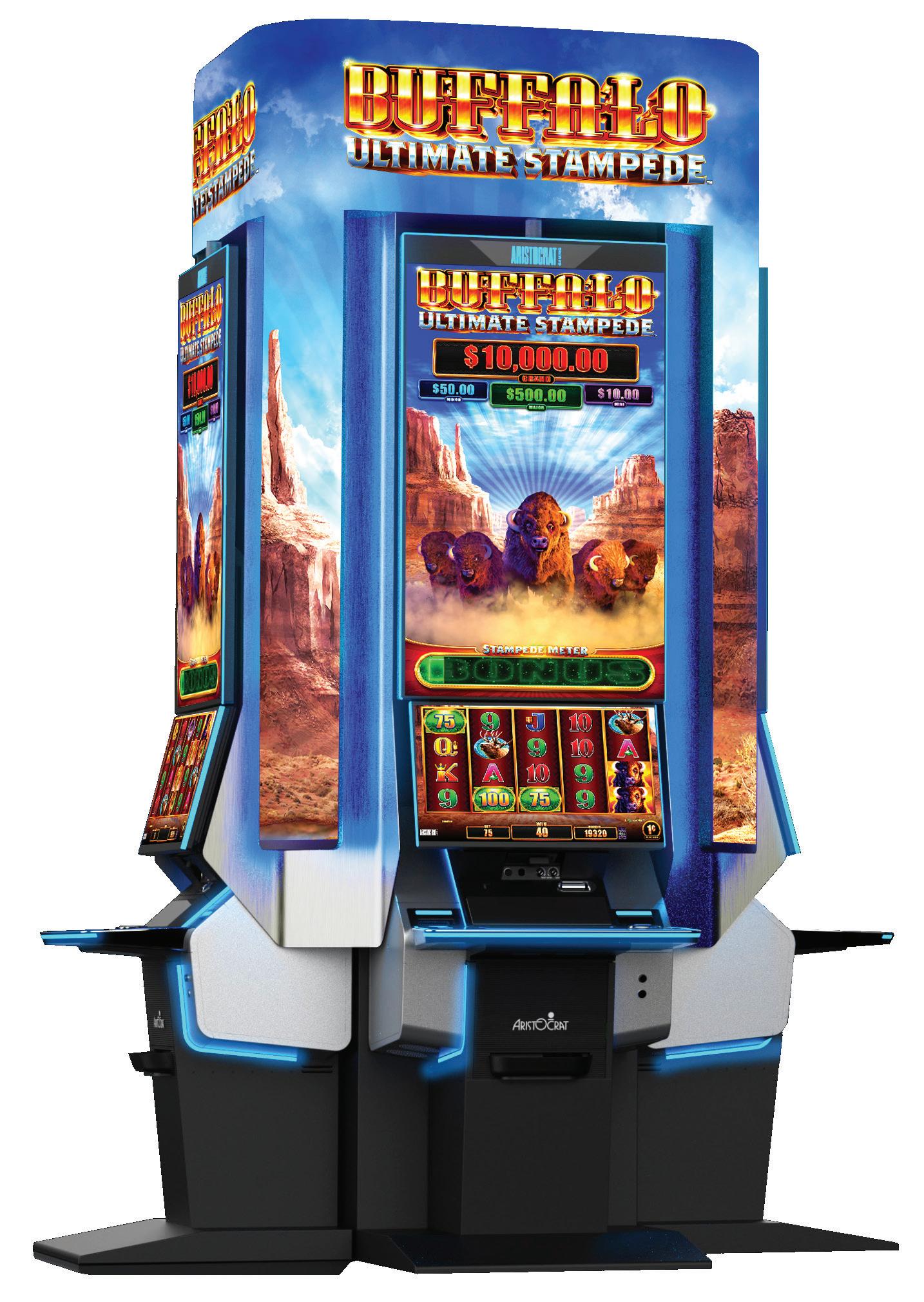
slot machine display technology features the largest fully contiguous micro-LED display on a four-pod system. The innovative signage package redefines visual appeal and integration, setting a new standard in the industry. Innovations include uninterrupted micro-led display, singletier format, holistic system integration, curtain design for floating effect, digital integration & alignment and visual interest & mass reduction.
The MarsX Flex and the Cyclone Sign Package is the next level of innovation in both placement configuration and premium quality content.
“THERE IS ALWAYS SOMETHING GREAT FOR PLAYERS TO ENJOY FROM ARISTOCRAT GAMING.”



IGT PlayDigital’s Engagement Platform provides a unique combination of cuttingedge gamification tools and personalized features, ensuring operators can deliver captivating experiences that stand out in today’s competitive iGaming landscape. The Engagement Platform was recently recognized as the Digital Product of the Year at the Global Gaming Awards 2024.
The suite of customisable tools offers six key elements which has allowed operators to transform their approach to player retention and engagement, all available via a single API.
Headlining the data-driven gamification offering is the unique Prize Engine, the most flexible promotional tool in the industry, that offers targeted promotions with game-agnostic jackpots and cash drops, delivering exciting rewards that increase player engagement.
It allows partners to create custom multi-level Cash Drop or Marketing Jackpot promotions, tailor campaigns to any game, any provider, and any RTP across all IGT and aggregated games on the supplier’s platform, offer promotions across any timeframe - daily, weekly, monthly and quarterly, award a variety of prize types - from cash to holidays to merchandise, build unique campaigns with unlimited customization and branding options
through modular, in-game widgets and pool liquidity with networked campaigns across multiple operators.
Additionally, the Player Hub offers fully customisable personalized content, a hugely popular feature with operators, allowing them to among other things, create game recommendations, provide quick access to a player’s favorite titles, showcase the current top games and display gameplay video inside the widget midspan.
Other key features include Leaderboards, Award Quests, Prize Draw, and Free Rounds,
all enhancing player lifetime value and increasing retention across markets. With a focus on marrying up best-inclass content with next-level marketing tools, the Engagement Platform has been a proven driver of value for operators, as IGT PlayDigital strives to create an environment for success for its partners. Available through a simple, one-off integration via the Transaction API, operators can unlock the full power of the innovative features, enhancing the player experience and maximizing the effectiveness of every campaign.




Light & Wonder’s Engage AI won the 2024 Product Innovation of the Year at the Global Gaming Awards Americas for its revolutionary technology and capabilities. Light & Wonder was honored for its efforts at the 2024 Global Gaming Expo (G2E) among other top industry suppliers.
Light & Wonder’s Engage AI enables operators to leverage data to execute a cohesive curated customer journey at every touchpoint regardless of location, vertical or platform.
With Light & Wonder’s new groundbreaking Artificial Intelligence tool, operators have access to real-time data and actionable triggered insights, transforming industry capabilities. This innovative solution not only integrates Light & Wonder products but also enables seamless third-party data imports, utilizing essential components to deliver real-time, customized marketing to customers.
Engage AI provides actionable insights, analytics and automated responses focused on profit-driven engagement, addressing areas such as player decline, session breakpoints, anonymous player behavior, player ranking, rapid loss detection, floor optimization and promotional scheduling.


It also offers operators the flexibility to create their own custom AI models tailored to specific business needs. Alongside enhanced customer understanding and engagement,
Engage AI is designed with an equal focus on responsible gaming and anti-money laundering, ensuring a holistic balanced approach to customer experience and regulatory compliance.
“LIGHT & WONDER’S ENGAGE AI ENABLES OPERATORS TO LEVERAGE DATA TO EXECUTE A COHESIVE CURATED CUSTOMER JOURNEY AT EVERY TOUCHPOINT.”

